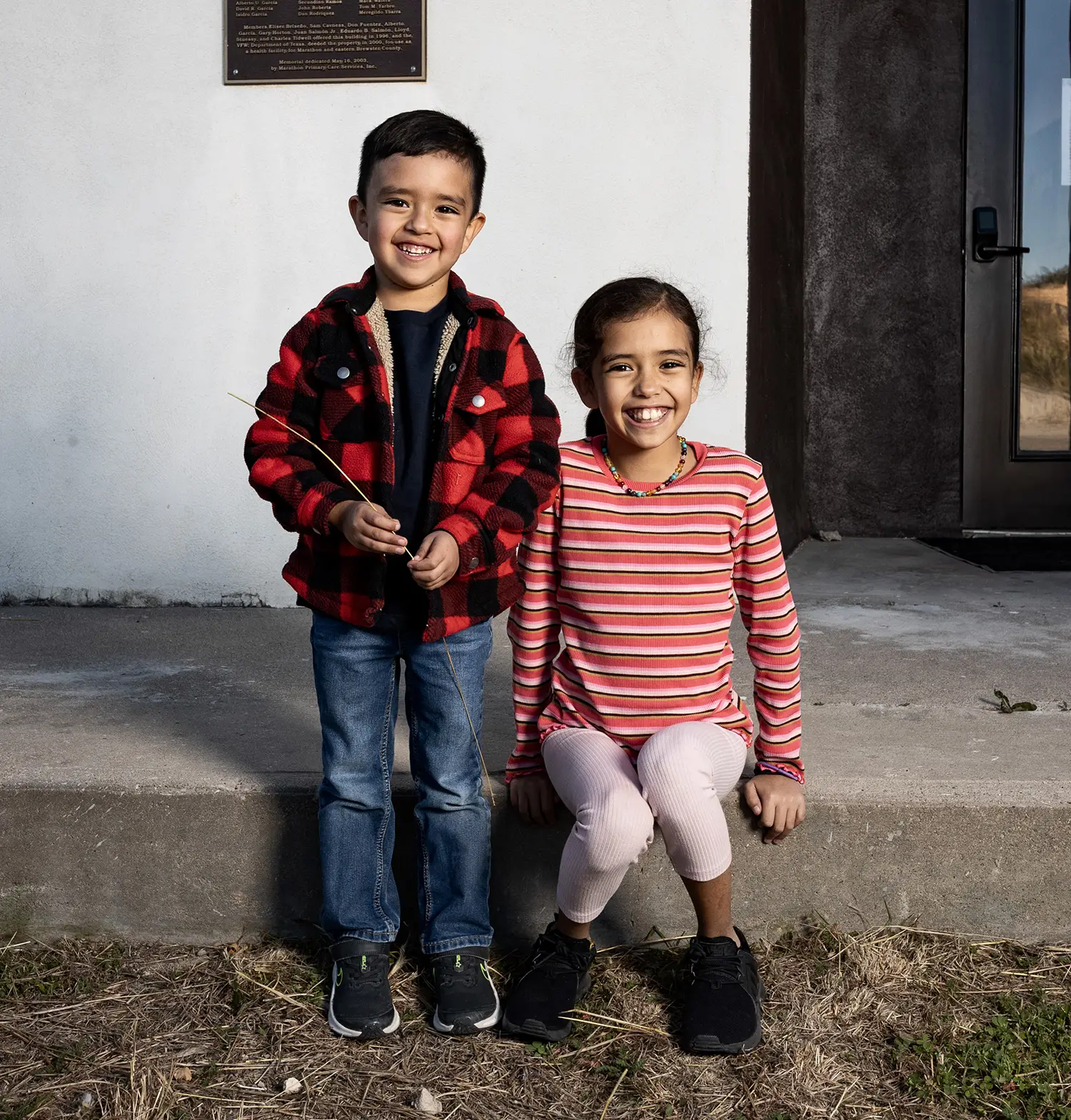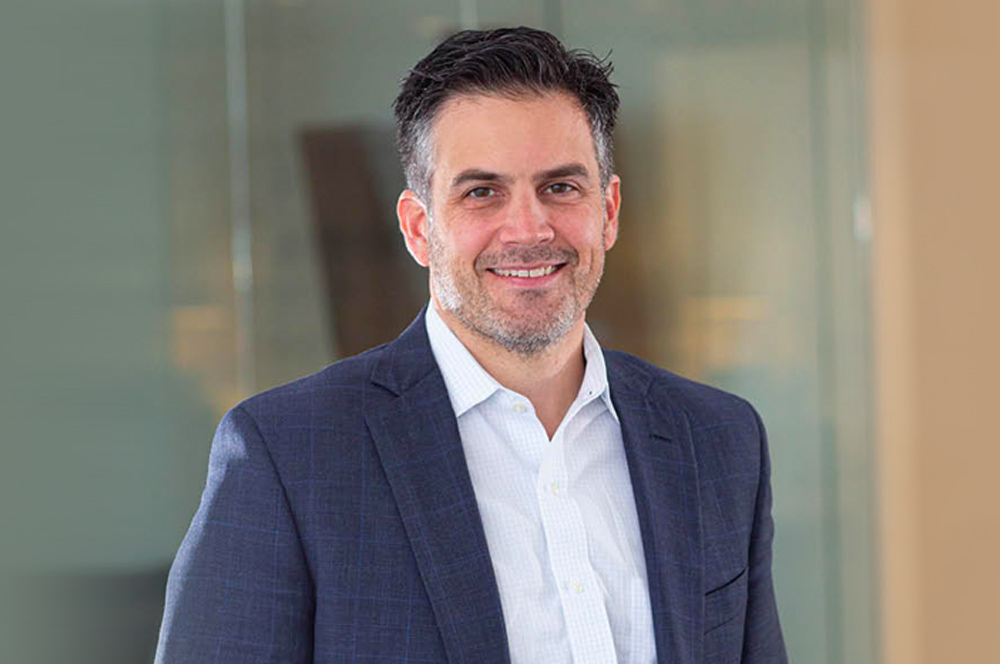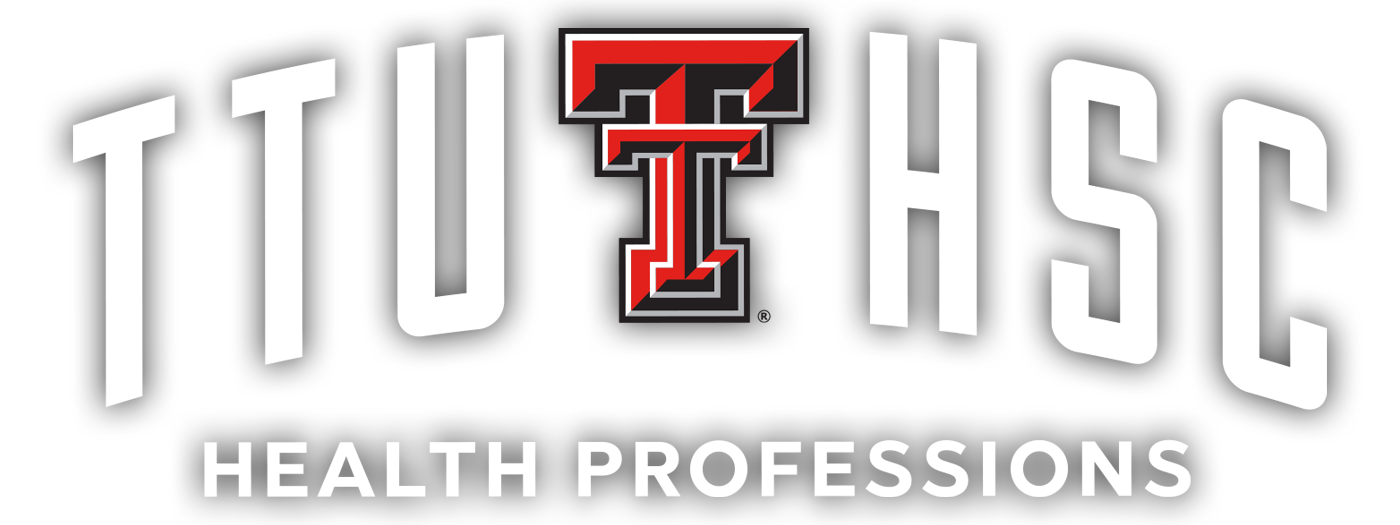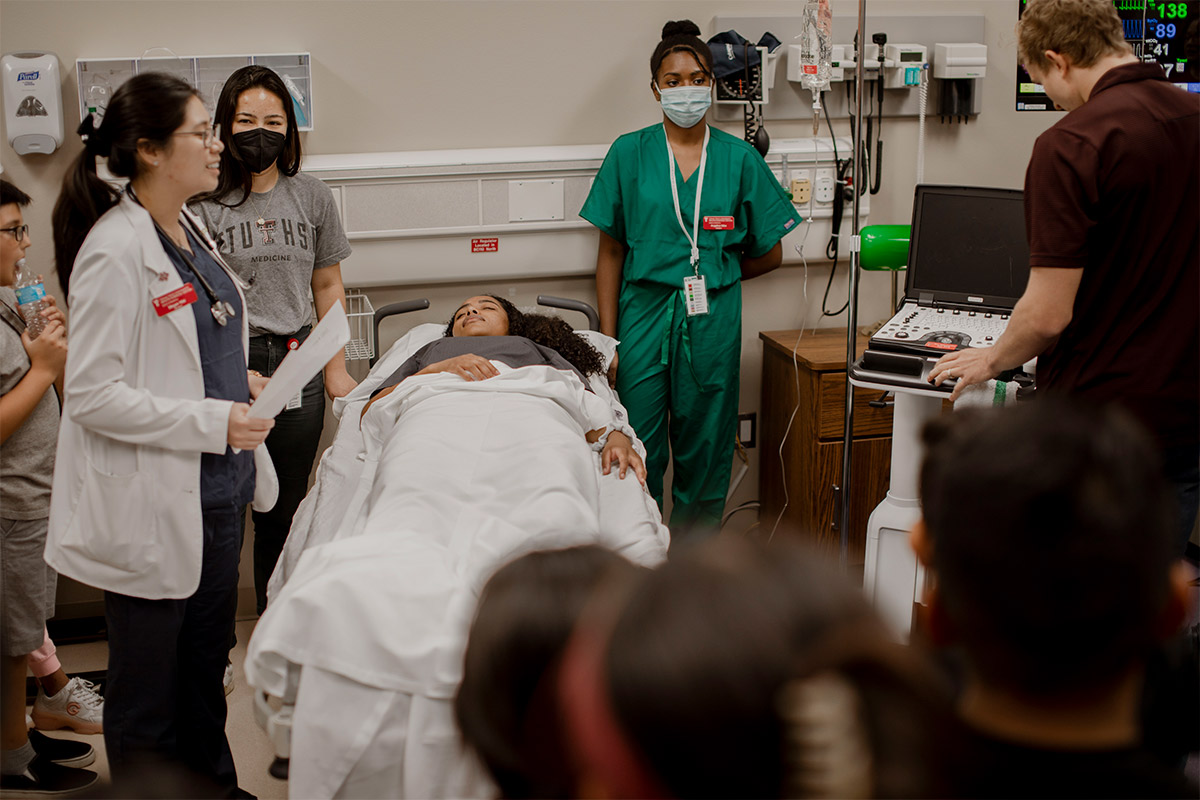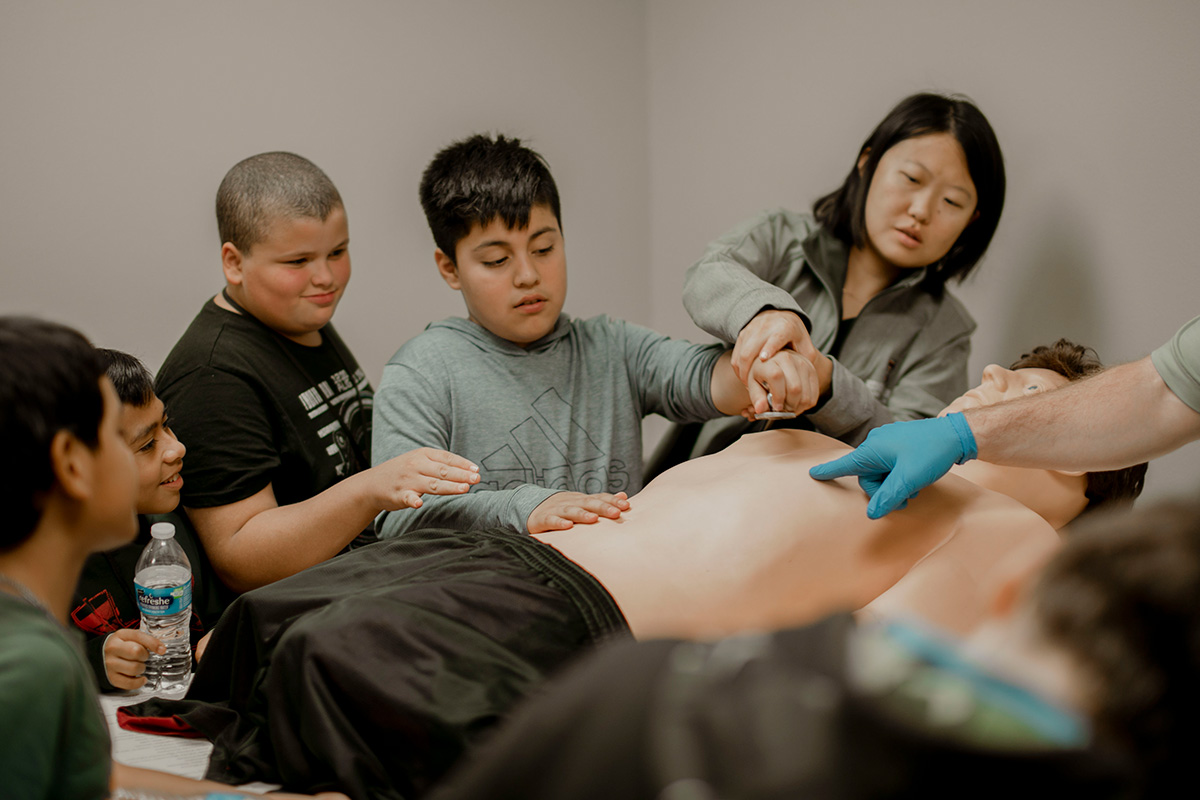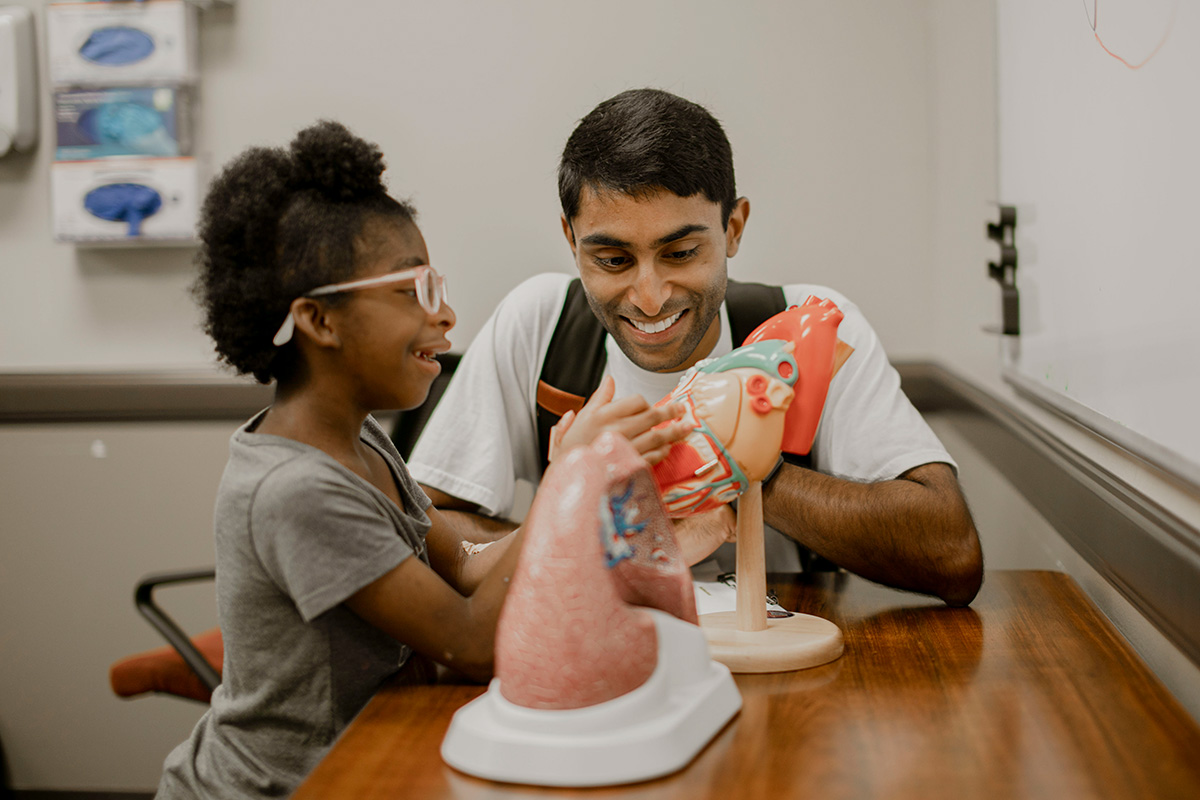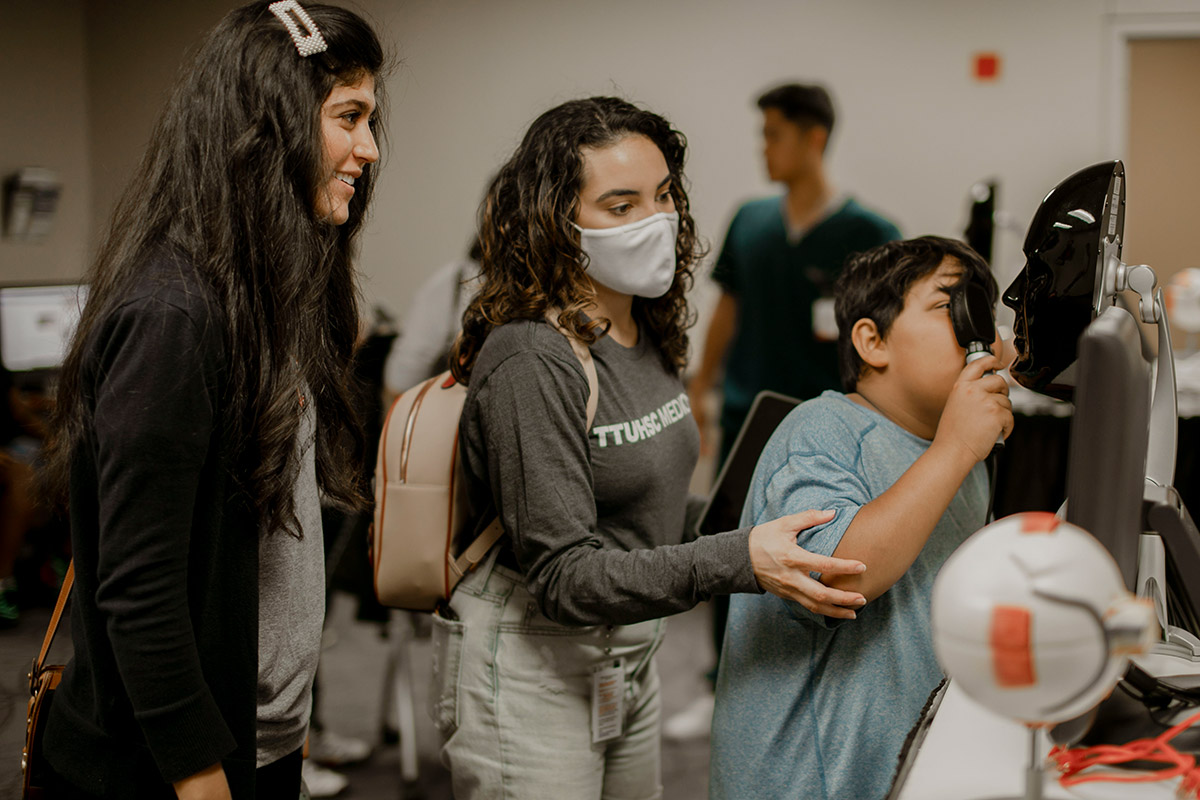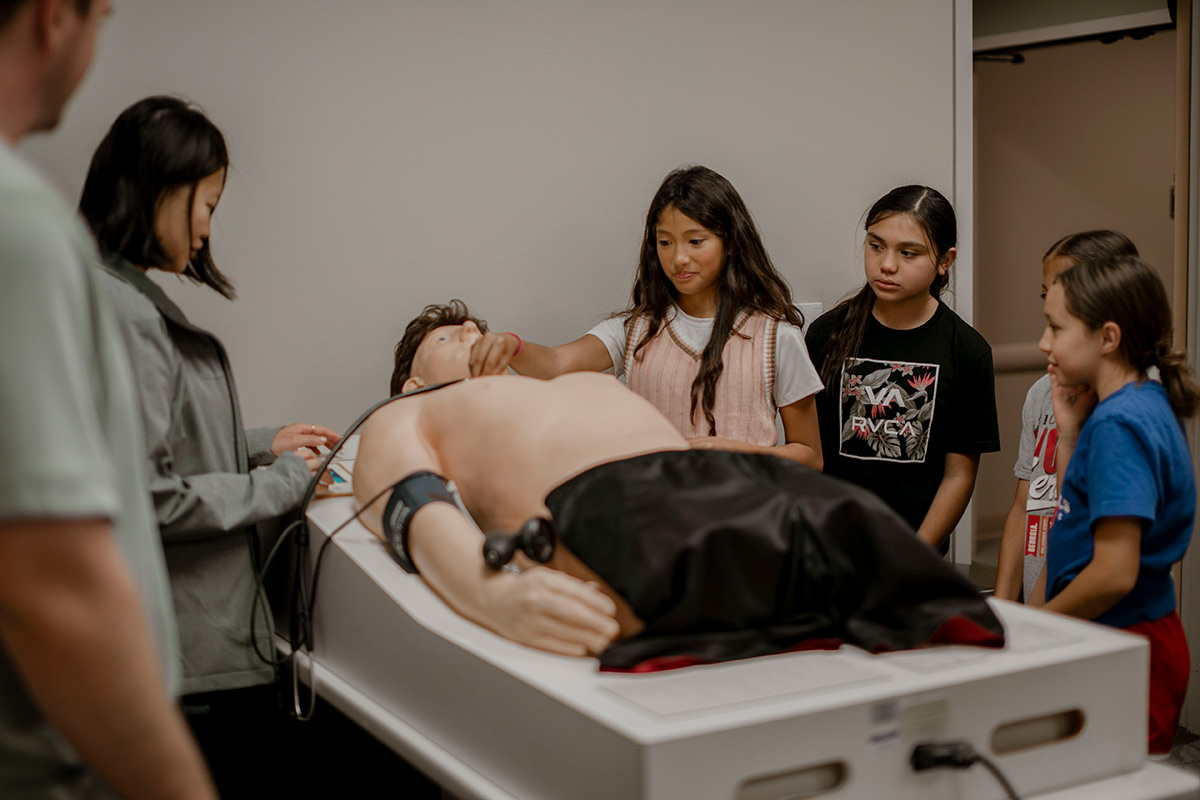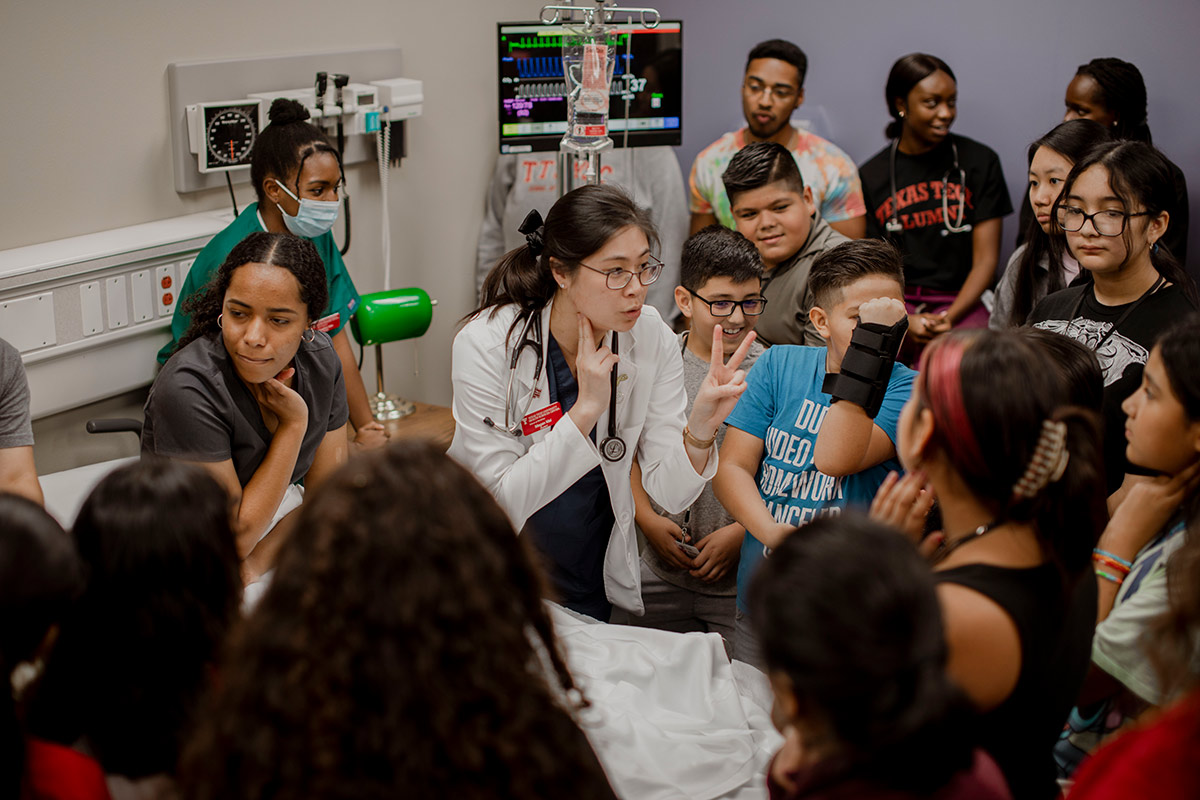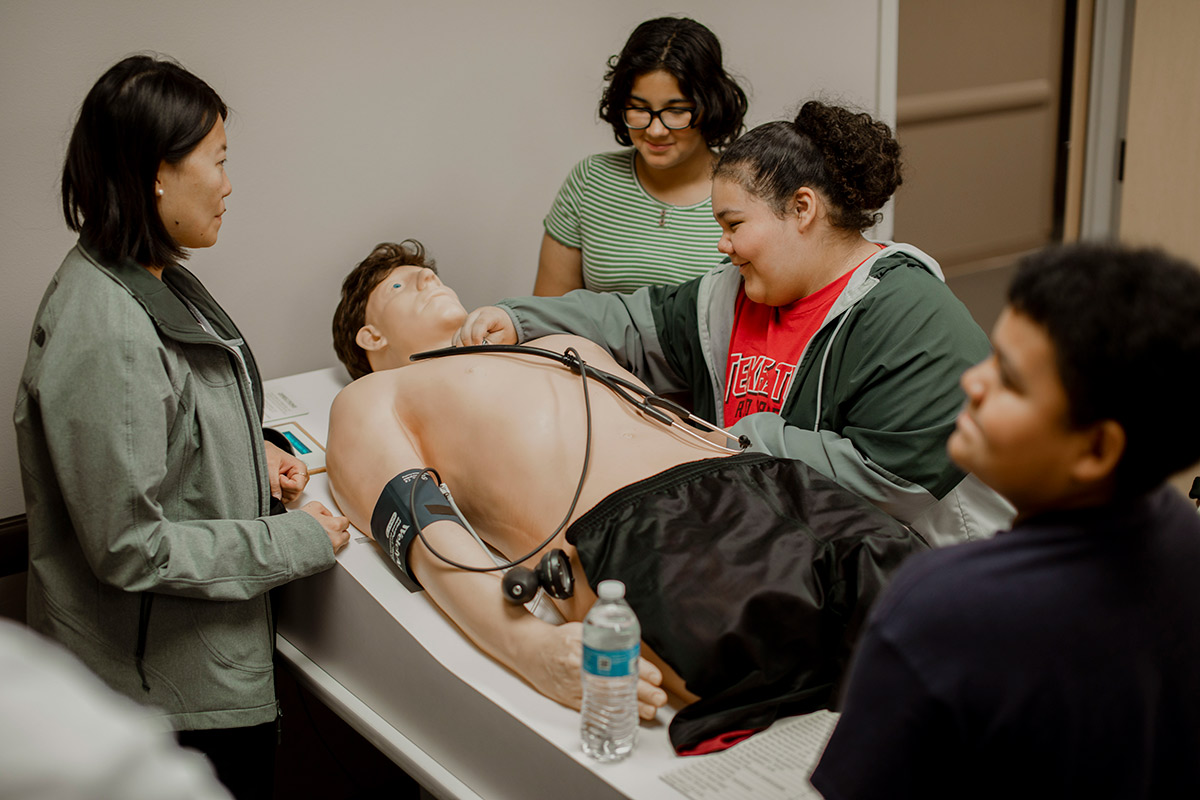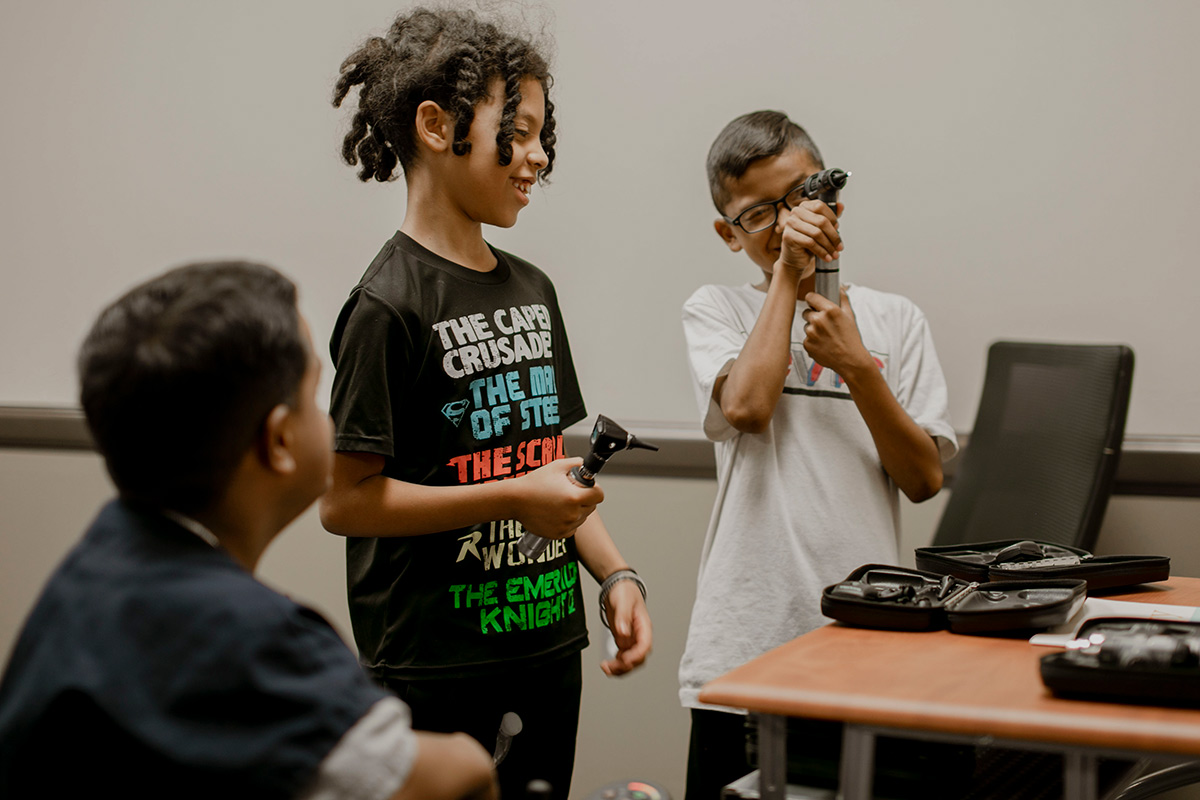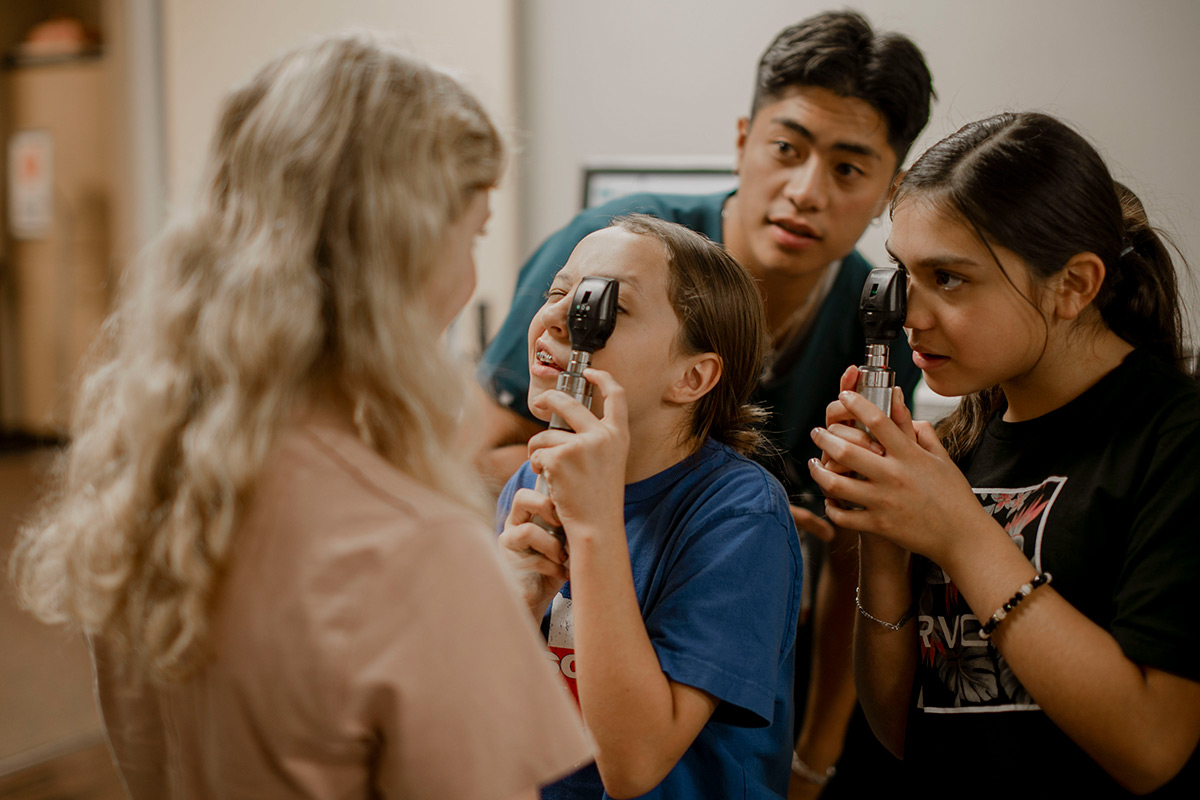
Pulse the Magazine of Texas Tech University Health Sciences Center Winter 2023


Features
By Alessandra Singh
By Alessandra Singh
Departments
In Every Issue

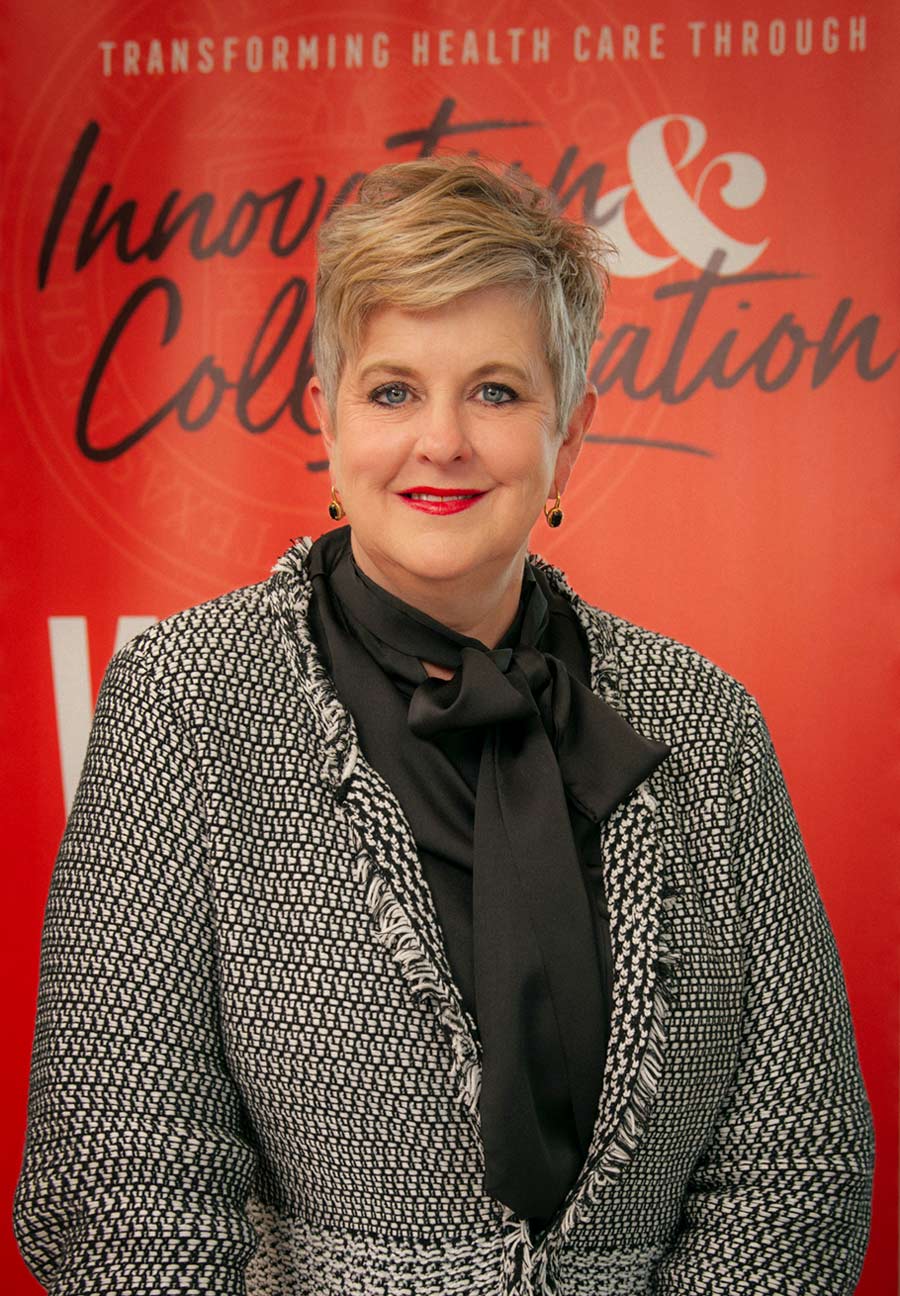
Taking Care of Those Who Take Care of Us
One of the innovative models we have developed is to push health care into communities, as we did recently with Marathon, Texas. Historically, health care pulls services away from a smaller community, requiring residents to seek care in larger metropolitan areas. This type of model provides access to care but at an insurmountable cost regarding navigability by the user.
TTUHSC can push health care into a rural community by working collaboratively with their existing providers and utilizing telemedicine. We pioneered such a model and have used it for many years. Now, with telemedicine surging as a solution to health care shortages in the post-pandemic landscape, the legislature is taking notice.
Editor’s Note
On another note …
Congratulations! The West Texas Journal of Medicine (westtexasjom.org) published its inaugural issue in December 2022. David Shane Harper, DMSc, PA-C, FCCM, DFAAPA, physician assistant and faculty associate professor for TTUHSC Department of Surgery in Amarillo, began the multidisciplinary online research journal. The publication is independent of TTUHSC; however, many of our faculty experts serve on the advisory board. This is another voice in the conversation about medical and health science to serve critical health care needs of people in this region.
OFFICE OF EXTERNAL RELATIONS
from the pulse archives — Spring 1989
FALL 1988 SITE VISIT

DEAR PULSE,
DEAR PULSE,
DEAR PULSE,
TTUHSC SCHOOL OF NURSING
Masthead

Editor-in -chief
Danette Baker
Managing Editor
Alessandra Singh
Design
Jim Nissen
Contributors
Susan Blystone, TR Castillo, Kim Catley, Suzanna Cisneros, Carolyn Cruz, Kate Gollahon, Tina Hay, Mark Hendricks, Neal Hinkle, Kami Hunt, Artie Limmer
Administration
President
Lori Rice-Spearman, PhD
(Health Professions ‘86)
Vice President of External Relations
Ashley Hamm
Assistant Vice President of External Relations
Mattie Been, Amarillo
Jessica Zuniga, Permian Basin
development
Chief Advancement Officer
Cyndy Morris
Gift Officers
Kevin Friemel, Jill Hockenbury, Jordan Nabers, Clarissa Sanchez, Clifford Wilkes
ALUMNI RELATIONS
Peyton Sifrit
Contact Us
pulse@ttuhsc.edu
TTUHSC External Relations
3601 Fourth Street STOP 6242
Lubbock, TX 79430-6242

Bachelor of Science in Clinical Laboratory Science
Second Degree Bachelor of Science in Clinical Laboratory Science
Post-Baccalaureate Certificate in Clinical Laboratory Science
Master of Science in Molecular Pathology
Master of Physician Assistant Studies
Rehabilitation Sciences
Master of Athletic Training
Doctor of Occupational Therapy
Post-Professional Doctor of Occupational Therapy
Doctor of Physical Therapy
Doctor of Science in Physical Therapy
Doctor of Philosophy in Rehabilitation Science
Concentration in Communication Sciences Disorders
Concentration in Movement Sciences Disorders
Speech, Language & Hearing Sciences
Doctor of Audiology
Bachelor of Science in Speech, Language, and Hearing Sciences
Second Degree Bachelor of Science in Speech, Language, and Hearing Sciences
Master of Science in Speech-Language Pathology
Healthcare Management & Leadership
Bachelor of Science in Healthcare Management
Master of Science in Healthcare Administration
Graduate Certificate in Health Informatics and Data Analysis
Graduate Certificate in Health Systems Policy and Management
Graduate Certificate in Healthcare Finance and Economics
Graduate Certificate in Health Systems Engineering and Management
Graduate Certificate in Long Term Care Administration
Clinical Counseling & Mental Health
Master of Science in Addiction Counseling
Master of Science in Clinical Mental Health Counseling
Master of Science in Clinical Rehabilitation Counseling


Bachelor of Science in Clinical Laboratory Science
Second Degree Bachelor of Science in Clinical Laboratory Science
Post-Baccalaureate Certificate in Clinical Laboratory Science
Master of Science in Molecular Pathology
Master of Physician Assistant Studies
Rehabilitation Sciences
Master of Athletic Training
Doctor of Occupational Therapy
Post-Professional Doctor of Occupational Therapy
Doctor of Physical Therapy
Doctor of Science in Physical Therapy
Doctor of Philosophy in Rehabilitation Science
Concentration in Communication Sciences Disorders
Concentration in Movement Sciences Disorders
Speech, Language & Hearing Sciences
Doctor of Audiology
Bachelor of Science in Speech, Language, and Hearing Sciences
Second Degree Bachelor of Science in Speech, Language, and Hearing Sciences
Master of Science in Speech-Language Pathology
Healthcare Management & Leadership
Bachelor of Science in Healthcare Management
Master of Science in Healthcare Administration
Graduate Certificate in Health Informatics and Data Analysis
Graduate Certificate in Health Systems Policy and Management
Graduate Certificate in Healthcare Finance and Economics
Graduate Certificate in Health Systems Engineering and Management
Graduate Certificate in Long Term Care Administration
Clinical Counseling & Mental Health
Master of Science in Addiction Counseling
Master of Science in Clinical Mental Health Counseling
Master of Science in Clinical Rehabilitation Counseling


Driving Access to Care
 TTUHSC TOGETHER
TTUHSC TOGETHERMental Health Check
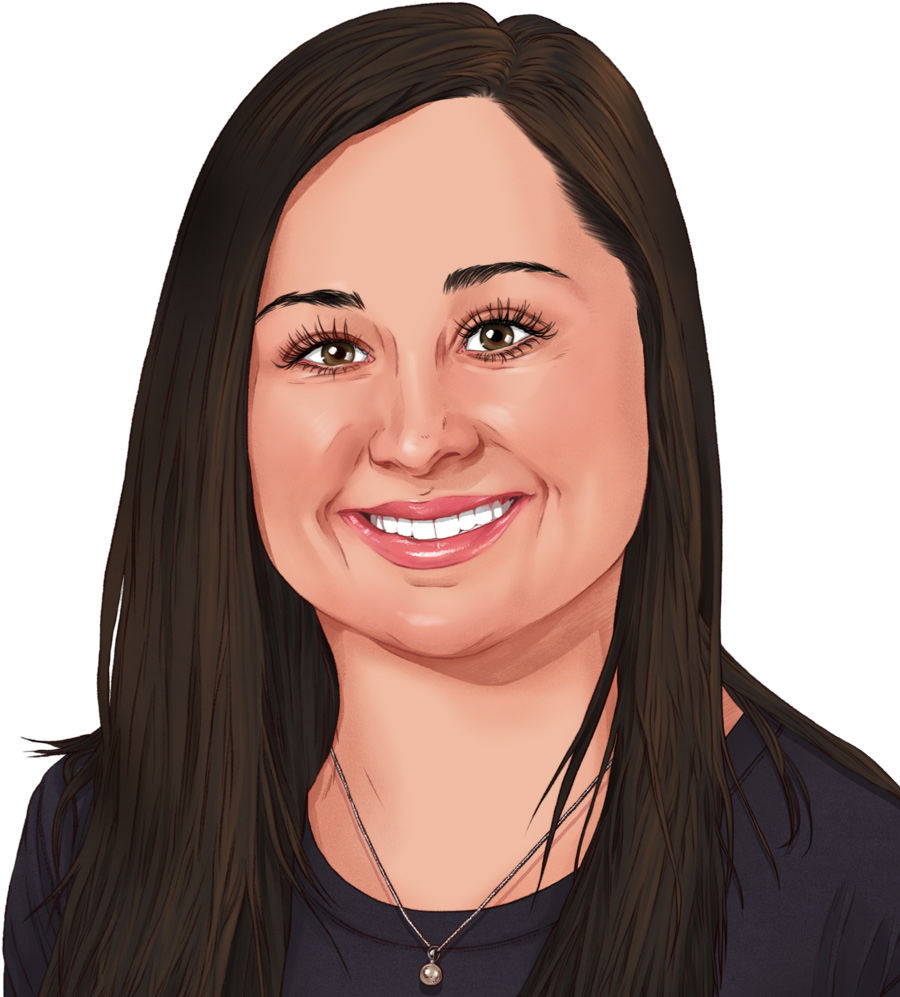
School of Nursing Associate Professor,
Assistant Dean of Wellness
Lubbock, Texas
Franco: “We all need to take care of ourselves and be mentally healthy to care for anyone else. If you don’t take care of yourself, how are you going to take care of others?”
What do you wish people knew about mental health?
Franco: “Everyone has mental health just like physical health, and as a society, we are doing better at decreasing the mental health stigma. No matter the circumstance, there is support for you. Please reach out.”
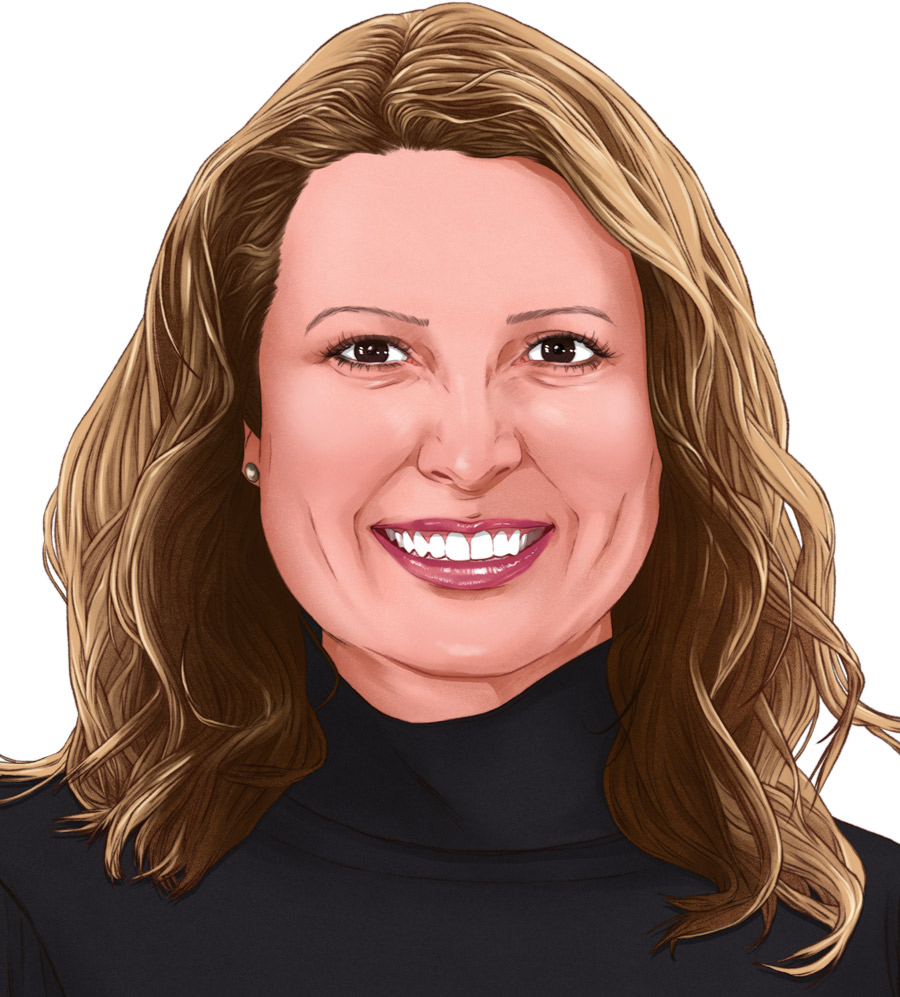
School of Medicine Associate Professor, Chair of Psychiatry
Lubbock, Texas
Wakefield: “I think that COVID-19 pushed our society toward a breaking point where mental health became something that we could no longer hide; we had to talk about and then enough people were experiencing mental illness that it actually has reduced some of the stigma associated with it.”
How does a person’s location impact their mental health?
Wakefield: “I think all communities have their strengths and their challenges. … But when you are unhealthy in a rural community, you have less access points to help get you well. You’re more isolated.”

DEI Research Grants
 Faculty profile
Faculty profileMolly Minze, PharmD
Molly Minze, PharmD, teaches fundamental pharmaceutical tasks with the goal of making students understand challenges that go beyond preparing the correct medication in the right dosage.
An associate professor of pharmacy practice at TTUHSC’s Abilene campus, Minze also emphasizes the need for future pharmacists to grasp how quickly patients can become overwhelmed as they frequently manage multiple prescriptions daily.
Minze is keenly aware of the patient’s perspective. She earned her Doctor of Pharmacy degree from the University of Houston College of Pharmacy and then completed residencies at Veterans Affairs Medical Center in Memphis, Tennessee, and Coastal AHEC and New Hanover Regional Medical Center in Wilmington, North Carolina. She works as an advanced pharmacy practitioner with Hendrick Health in Abilene. Students join her there and at practice sites where they experience the unexpected.
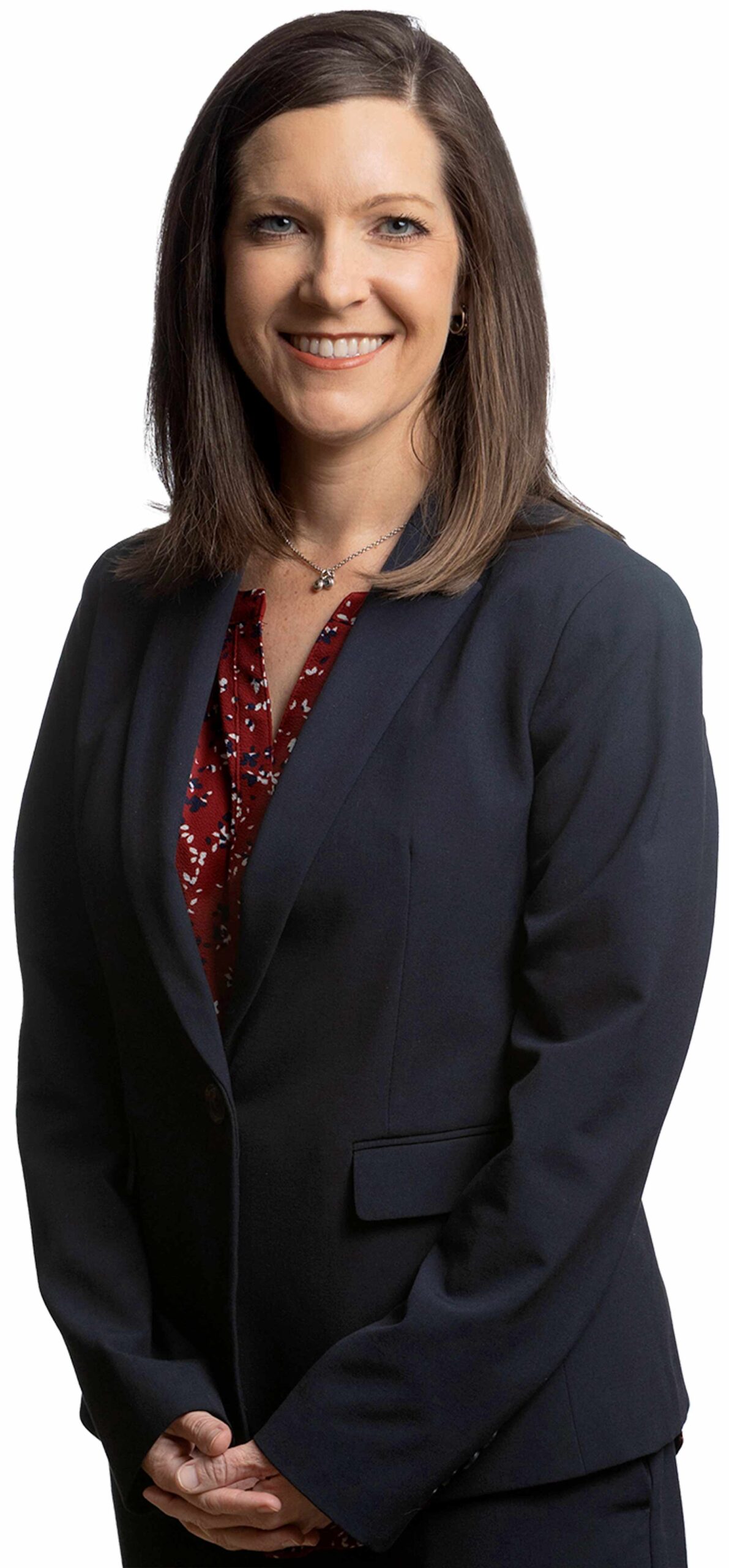
 for the record
for the recordStat!
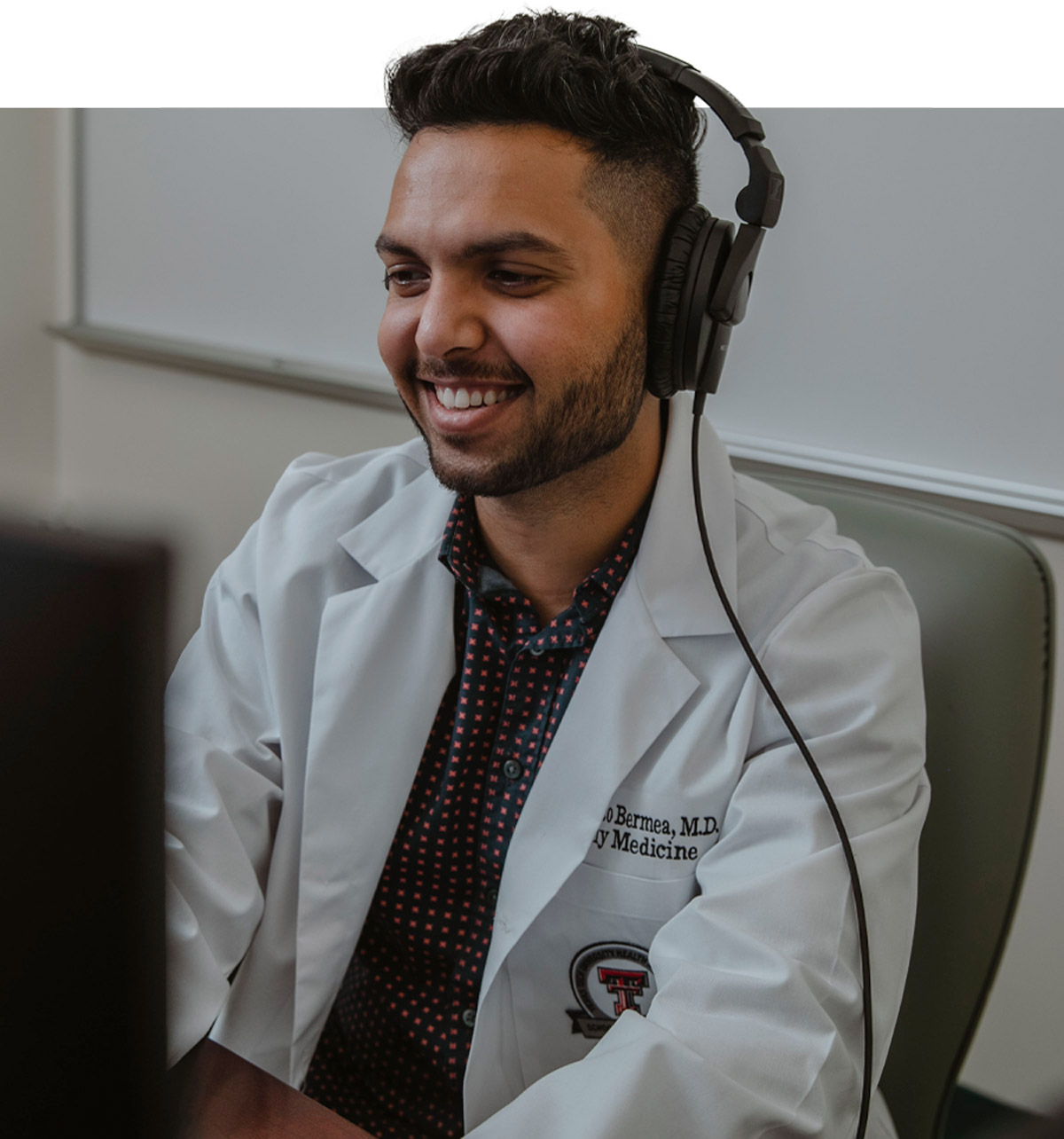


78
students across five schools participated in a Telemedicine pilot project by Innovative healthcare transformations (Inht) that taught students telehealth practices for exposure to the challenges and advantages of it.

“The standards you all set for our health care in this community are really high, and I want to personally thank you for that.”

Watch this!

1
Start by clicking the LED button (LED), which turns on a light for the tool.
2
With the LED light on, bring the tip of the otoscope, where the camera is located, to a white surface. Click the white balance button (WB), which will enhance the picture quality that appears.
3
The removable otoscope tip is used to see the respective areas during the exam, such as the inner ear or the throat.
4
Use the freeze frame button (FF) to create a still image from the live video feed for a particular spot that will allow the telemedicine physician to examine more closely.
Vitals SCHOOL OF NURSING
SCHOOL OF NURSING



ASSOCIATE PROFESSOR IN THE SCHOOL OF NURSING
Virtually Real Health Care
Students who take the nursing course “Concepts of Community and Public Health” encounter this scenario in a simulation created by Amy Boothe, DNP, RN, CHSE, (Nursing, ’18), associate professor in the School of Nursing.
The goal is to help students understand issues involved in working with vulnerable populations. Boothe developed the telehealth virtual simulation with Brittany Hall, MS, CCC-SLP, (Health Professions ’05, ’03), assistant professor in the School of Health Professions Department of Speech, Language and Hearing Sciences; Emmanuel Sanchez, IT director for the School of Nursing; and Pedro Villa, CHSOS, in the Simulation department.
In the online class, students watch the video clips independently and then respond to on-screen questions about the scenario. The exercise prompts students to think about a range of issues, including how to conduct a health assessment, interact with vulnerable populations, use a medical interpreter, and identify red flags indicating possible opioid abuse.
Boothe has included virtual simulations in her courses for the past three years.
 School of Medicine
School of MedicineFuture Physicians
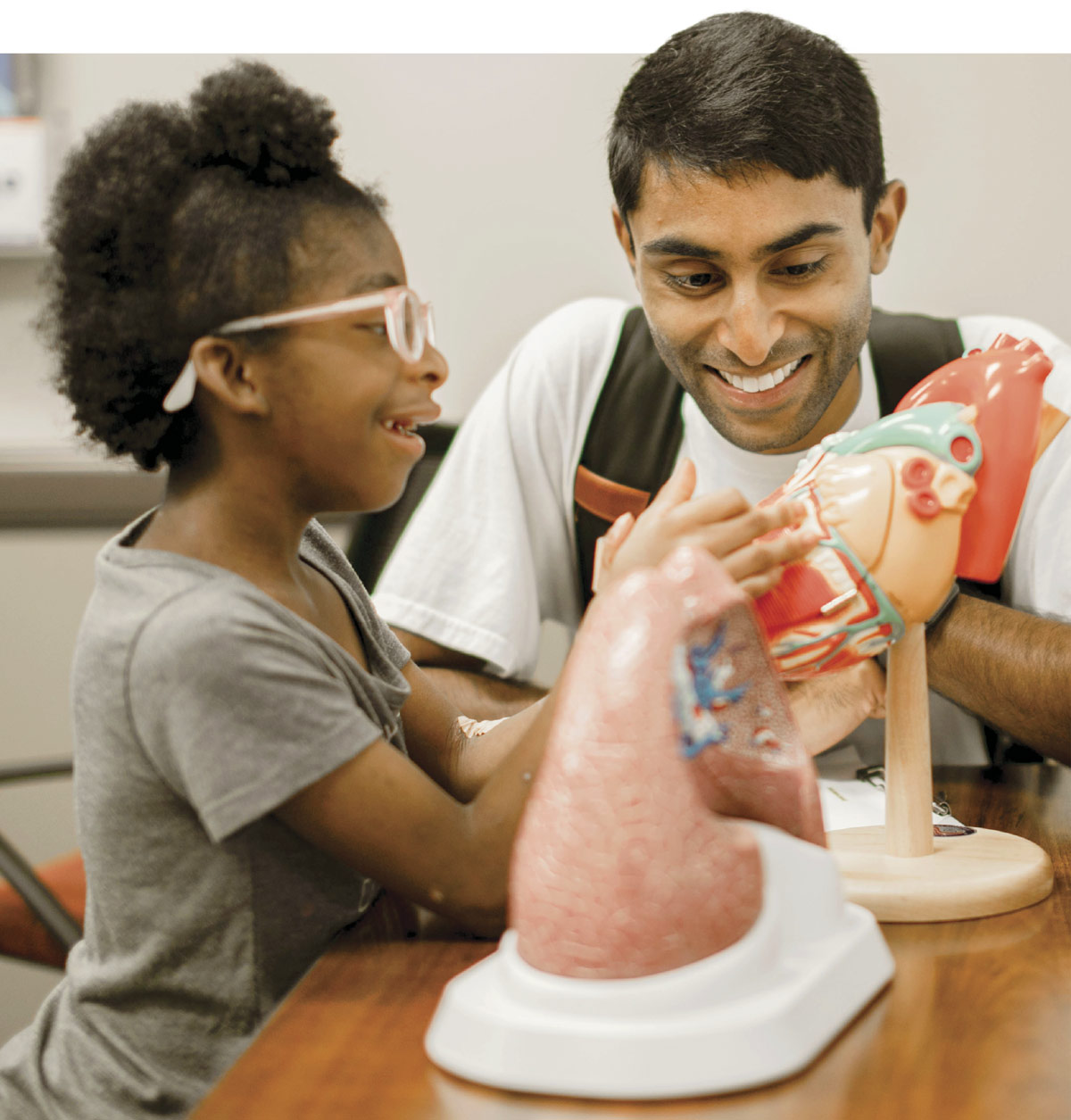
Expanding the surgical team
When Shelton Viney, MD, (Medicine ’77) first opened his practice in Midland, Texas, he saw an immediate influx of patients from Lubbock and the Permian Basin. At times, he said, there were only three surgeons taking on all major surgeries in the area. “I saw a real need for a residency program and expansion.”
After 40 years of private practice in Midland, Texas, Viney, regional chair of the Department of Surgery for the Permian Basin, is seeing the need fulfilled.
A COMMUNITY EFFORT
THE FIRST CLASS
CHANGE IS COMING
Viney said the program also aims to train residents who will stay in the Permian Basin, providing necessary care for the numerous small towns that lack local surgeons.
A LEARNING EXPERIENCE THAT LASTS
“We’re all seeing consults, operating and getting face time with attendings early on,” Behery said. “That hands-on practice will ultimately be beneficial for our full five years.”
Vitals Jerry h. hodge school of pharmacy
Jerry h. hodge school of pharmacy
All Things Vaccine


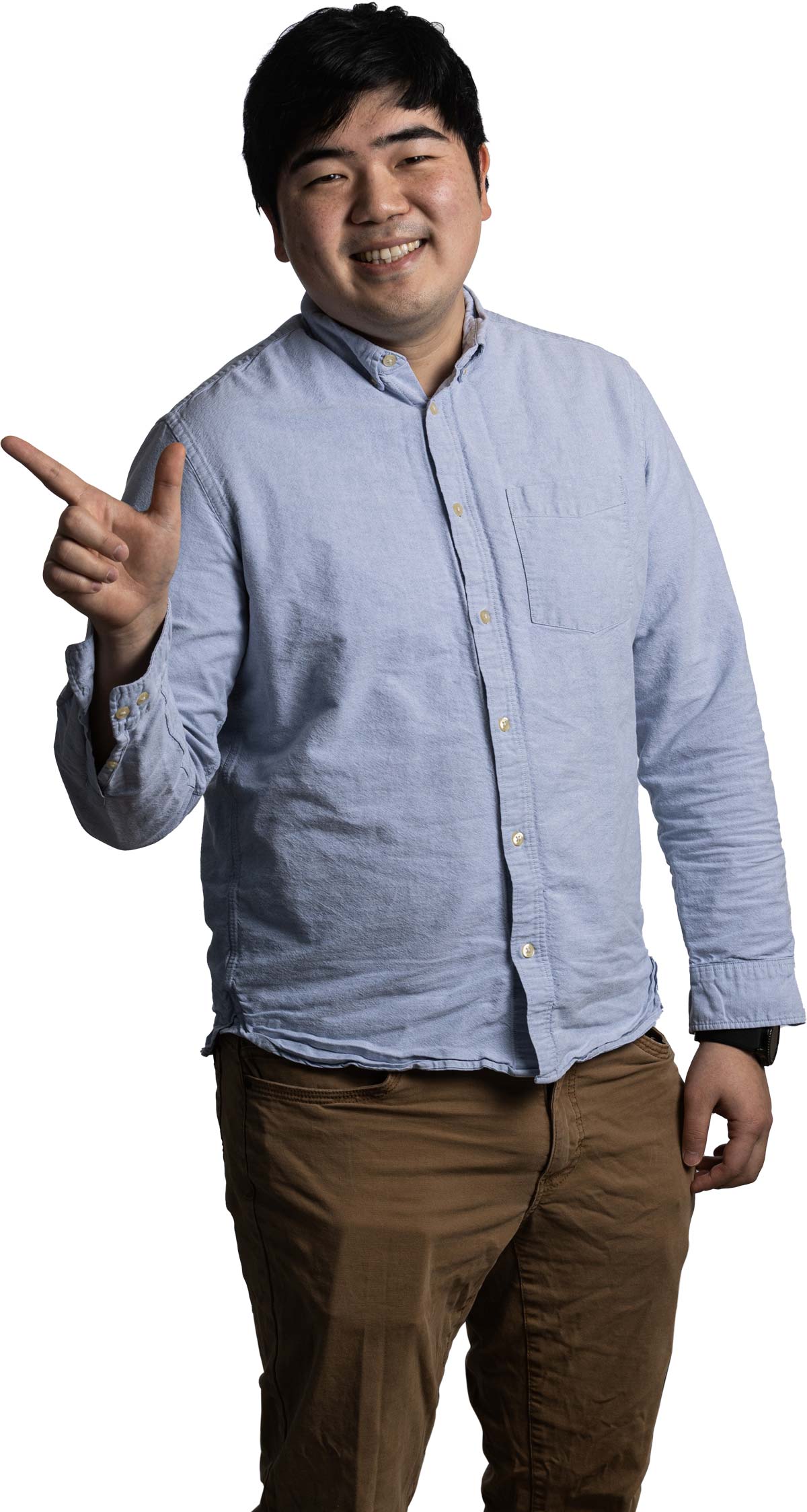
Vitals Jerry H. Hodge school of pharmacy
Jerry H. Hodge school of pharmacy
Meet Pharmacy’s Third Dean
Grace Kuo, PharmD, MPH, PhD, said TTUHSC’s complexity drew her to the university. A passion for caring for underserved populations with a combination of rural and urban settings offers “great educational and service opportunities for our students, faculty and staff.”
Kuo joined TTUHSC on May 16, 2o22, as the third dean of the Jerry H. Hodge School of Pharmacy. Building on the school’s foundation, Kuo hopes to strengthen the pipeline of incoming students and stand out in a crowded field of pharmacy schools. She said academic offerings, such as the PharmD/MBA, PharmD/MPH dual-degree programs and collaboration with the Texas Tech University School of Veterinary Medicine, will help increase TTUHSC’s visibility.
In addition, Kuo wants to prepare students for changes in the field and help them develop a solid professional identity.
“Pharmacists bring a unique set of qualifications and expertise. We are an integral part of the interprofessional team. We are here to help patients achieve optimal medication-related, disease-management outcomes.”
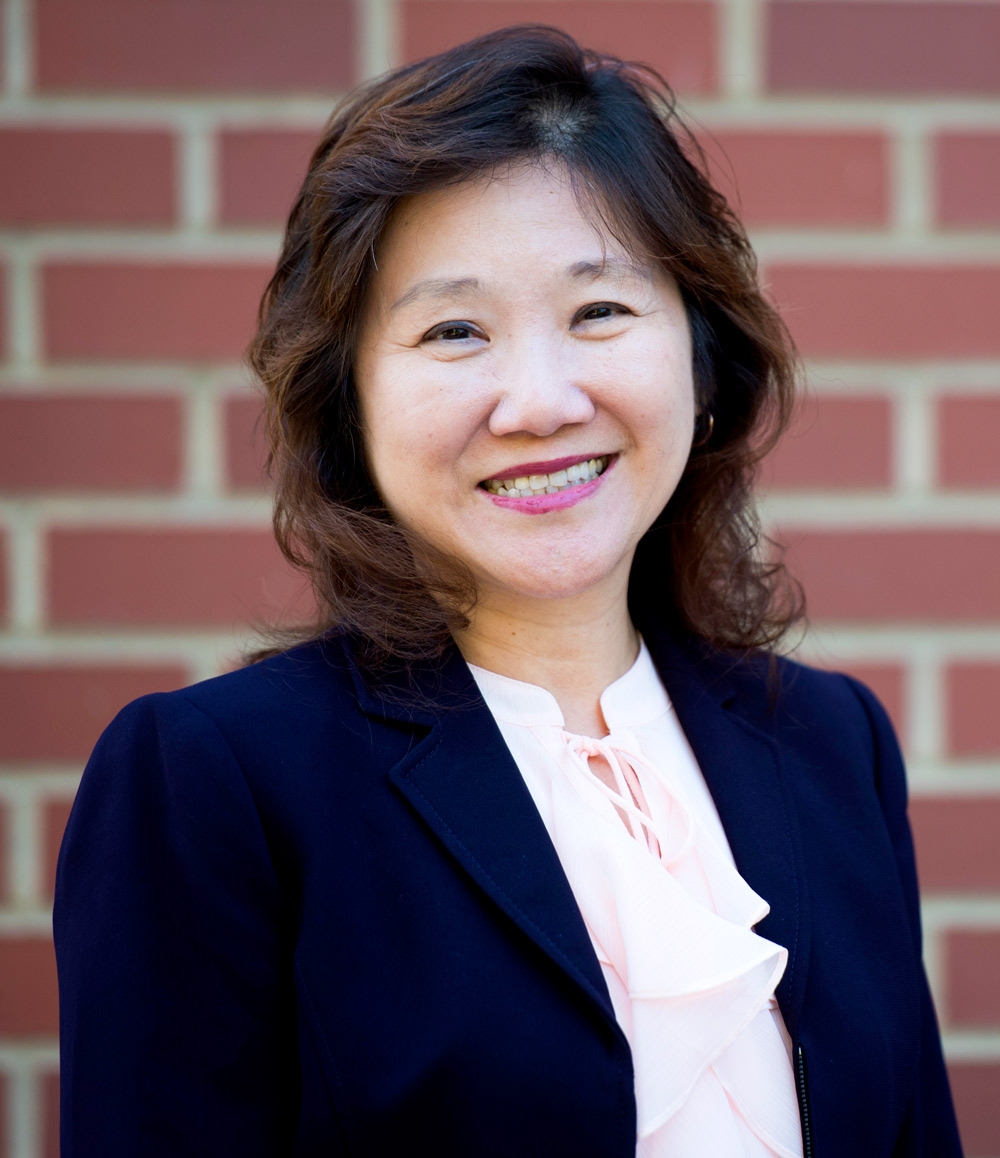
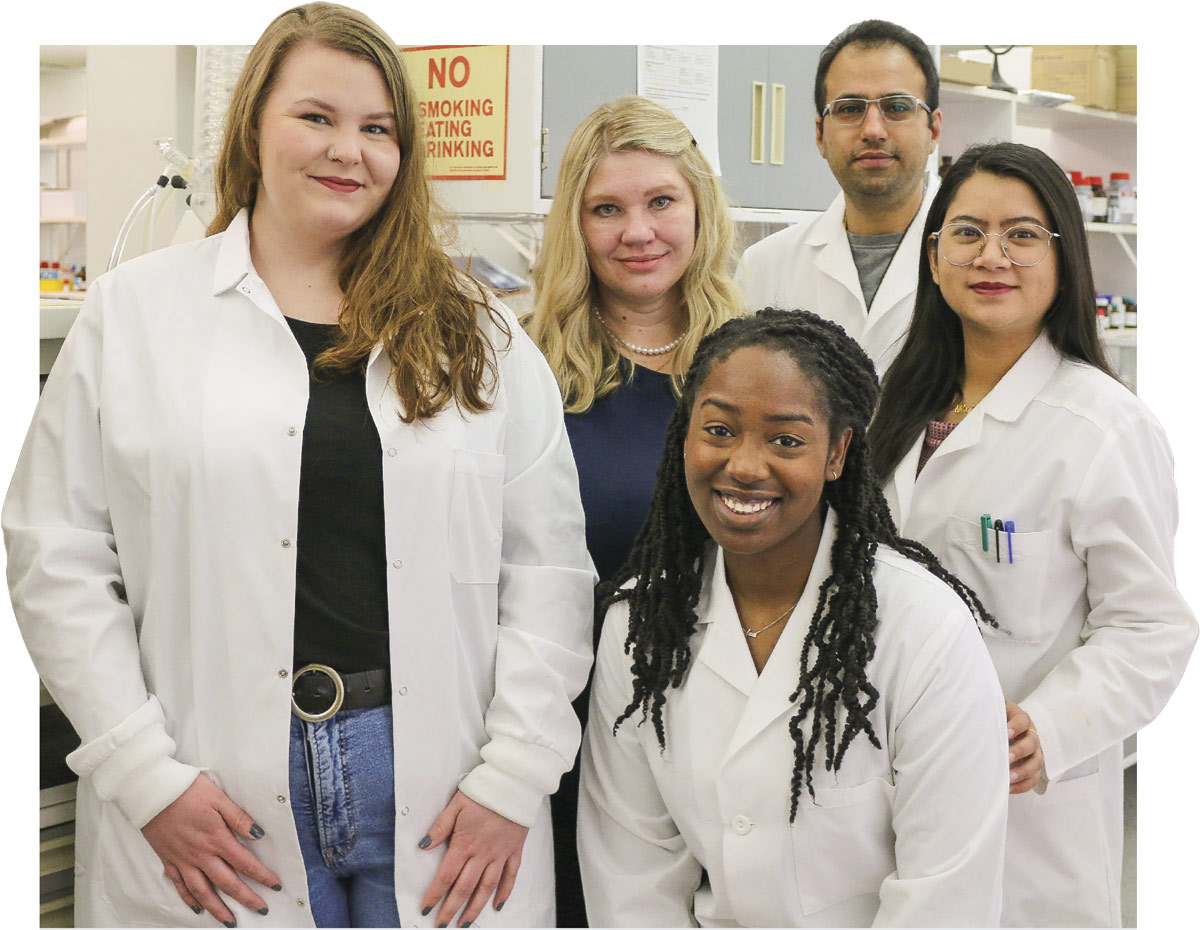

Nadia German, PhD, center, with her lab team.
Chemical Probe Patent
Vitals Julia Jones Matthews School of Population and Public Health
Julia Jones Matthews School of Population and Public Health
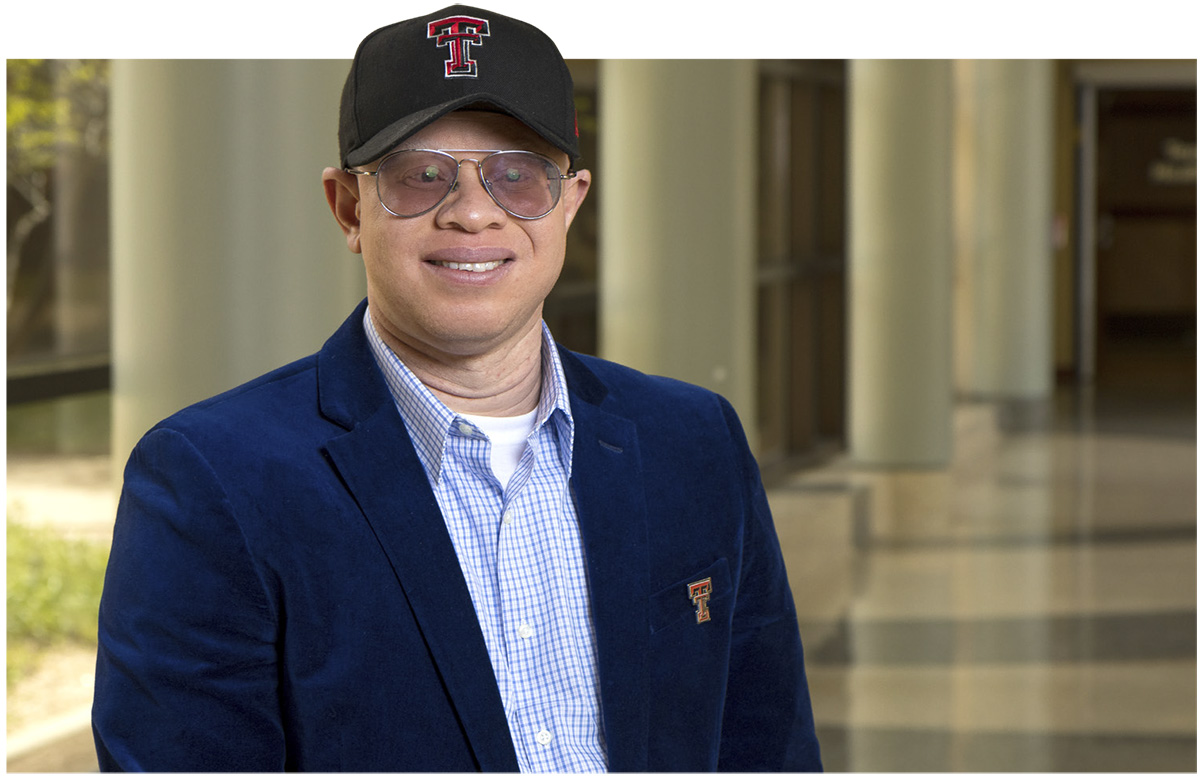
Deeper Dive
Duke Appiah, PhD, MPH, associate professor for the Julia Jones Matthews School of Population and Public Health, is among the recipients of TTUHSC’s new Diversity, Equity and Inclusion grants for his research on health disparities in West Texas. Building on the foundation of his previous research focused on asthma, Appiah aims to explore other health inequities of medically underserved West Texas. He will focus on geographic, racial and ethnic health disparities that will contribute to “information for education (to students and faculty) and intervention (to public health officials).”
Carrino to serve as inaugural dean
EDUCATION
MPH — Columbia University Mailman School of Public Health
BS — University of Akron
RESEARCH
Presentations — 8
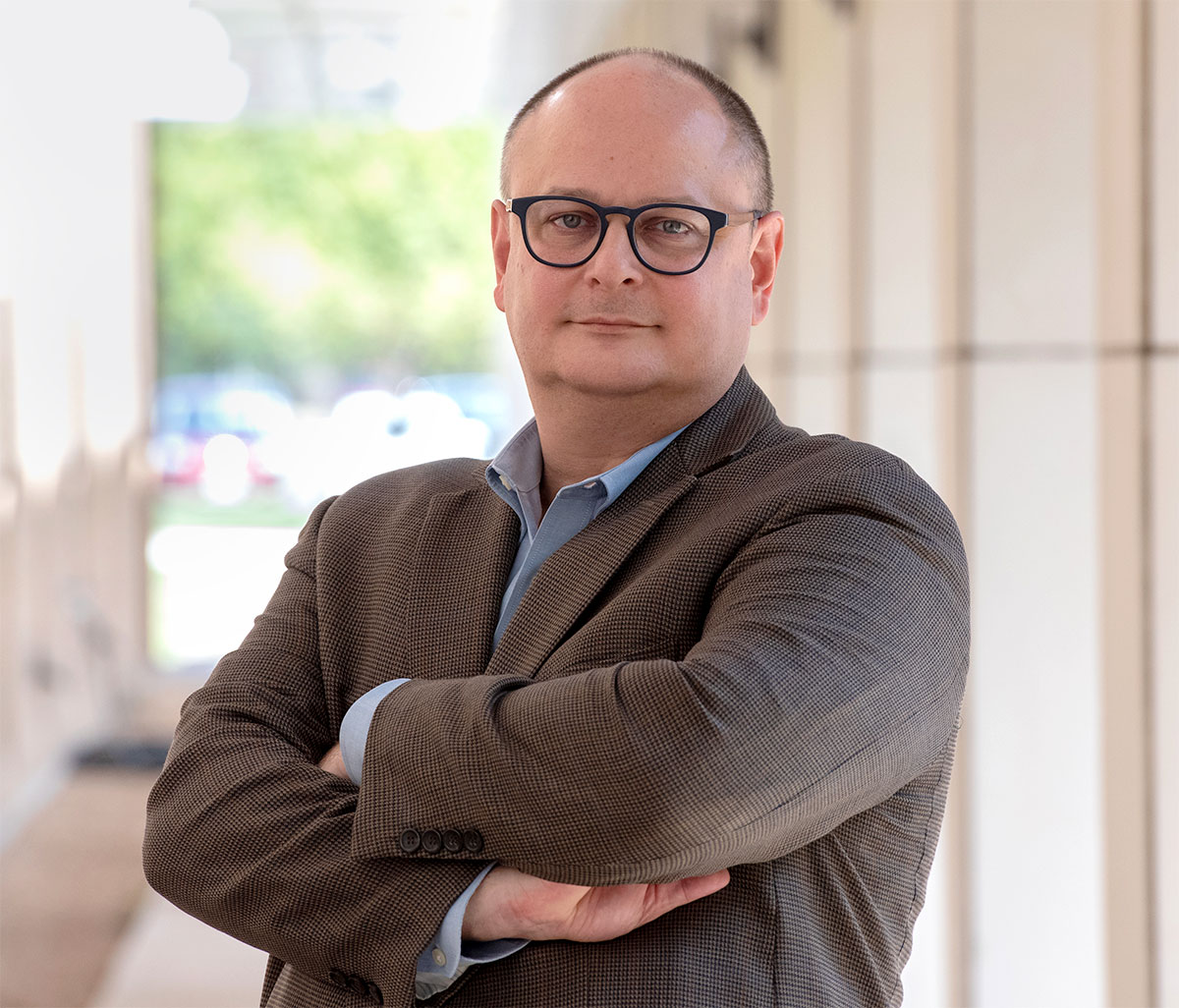
Vitals Graduate school of biomedical sciences
Graduate school of biomedical sciences
Repurposing Drug to Treat Cancer
His work recently earned Srivastava a U.S. patent for repurposing the antipsychotic drug pimavanserin, that acts within the brain to prevent hallucinations and delusions, to treat various types of cancer.
Srivastava, a professor in pharmacy, said the patent covers all applications of the drug in the field of cancer and would have to be considered as part of any cancer drug development process. The next step, he notes, is to conduct clinical trials to determine pimavanserin’s active effect against cancer in humans.
It generally takes at least five years before investigators are confident in the drug’s efficacy and safety profile; however, Srivastava believes the timeframe could accelerate with pimavanserin and given its prior FDA approval, “take the drugs to the patient much faster.”
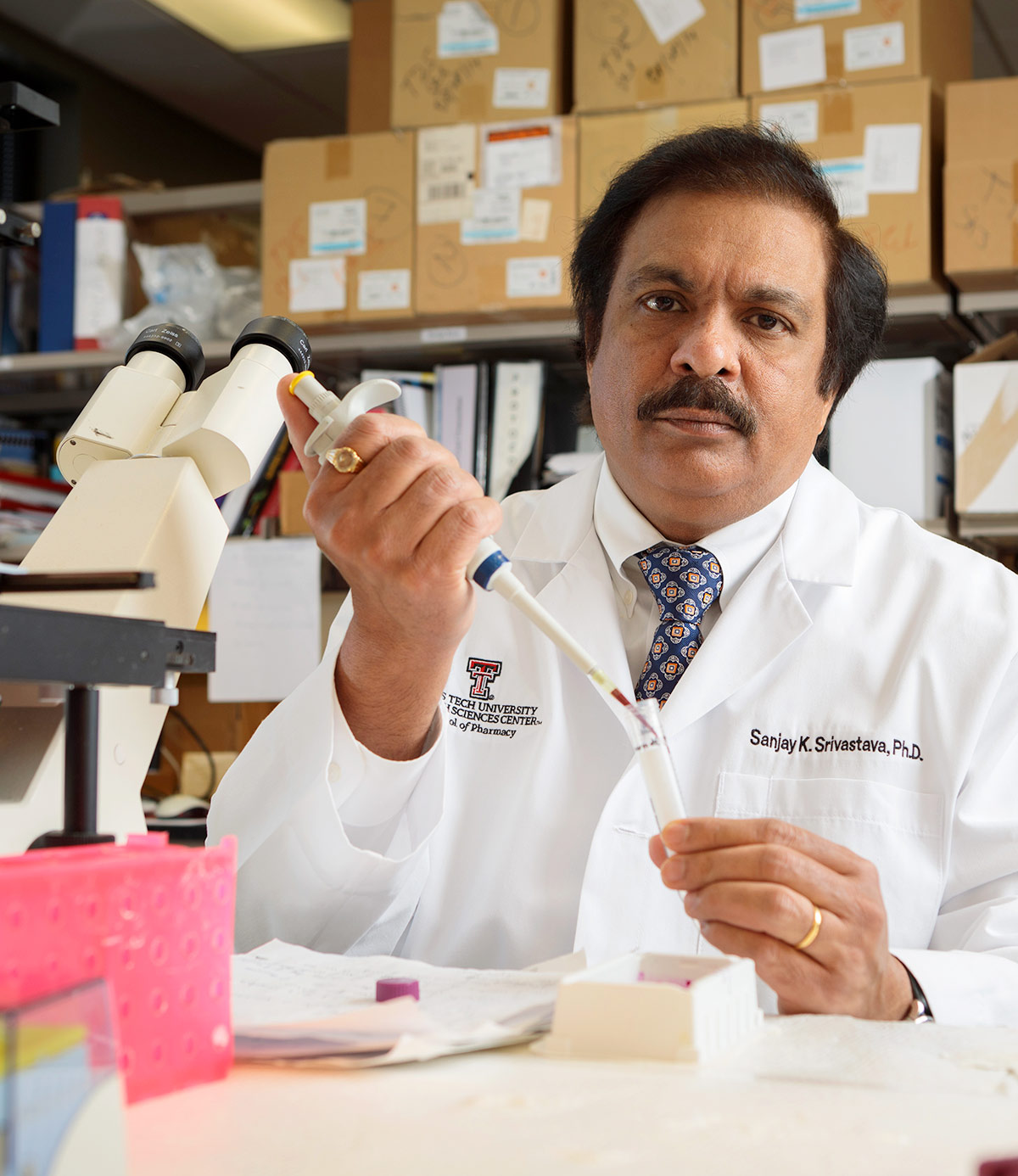
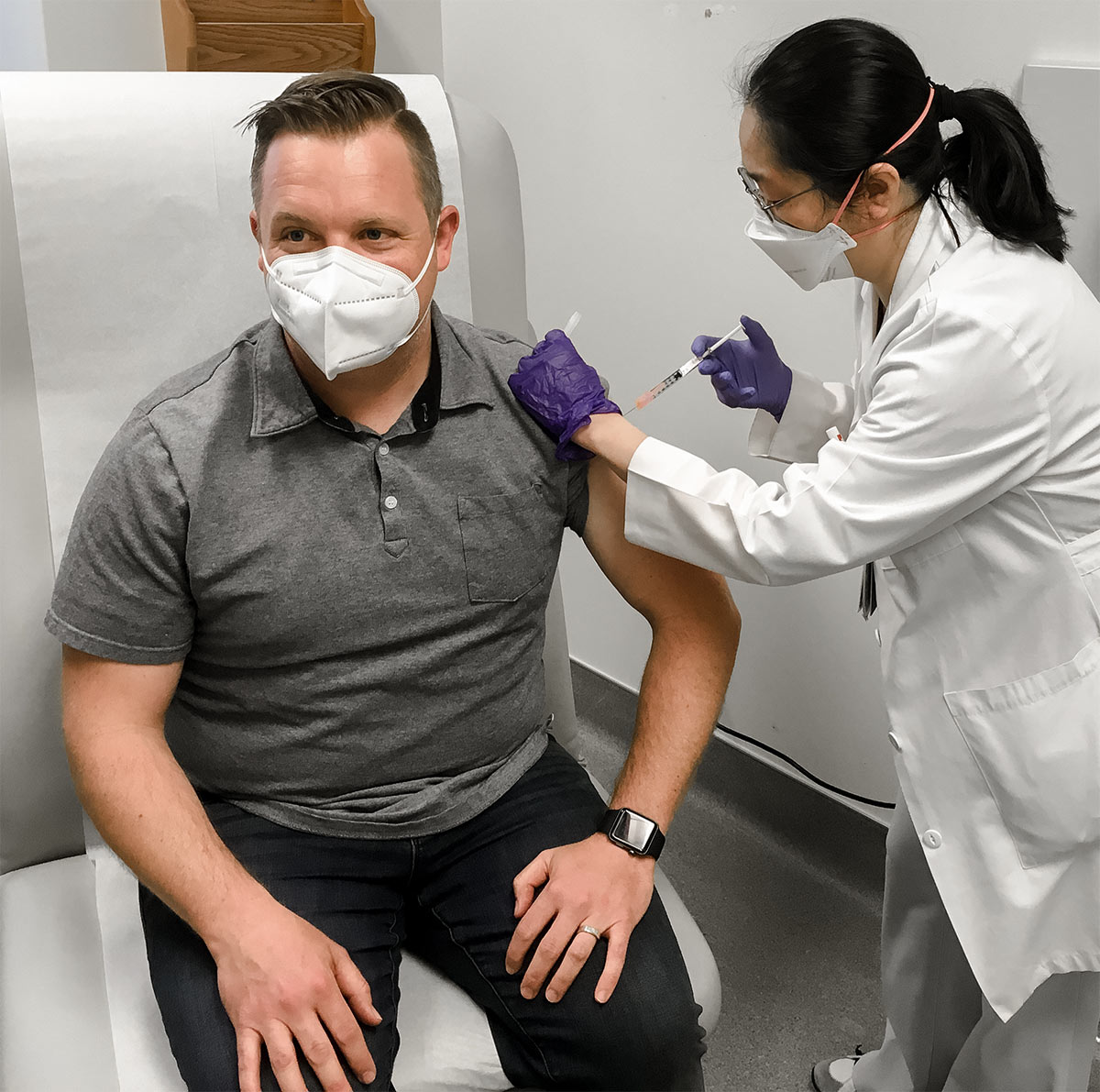

A study participant receives the first-ever shot of the SchistoShield investigational vaccine at Kaiser Permanente Washington Health Research Institute on May 23, 2022.
CREATING A SOLUTION
Vitals SCHOOL OF HEALTH PROFESSIONS
SCHOOL OF HEALTH PROFESSIONS
A Place for All
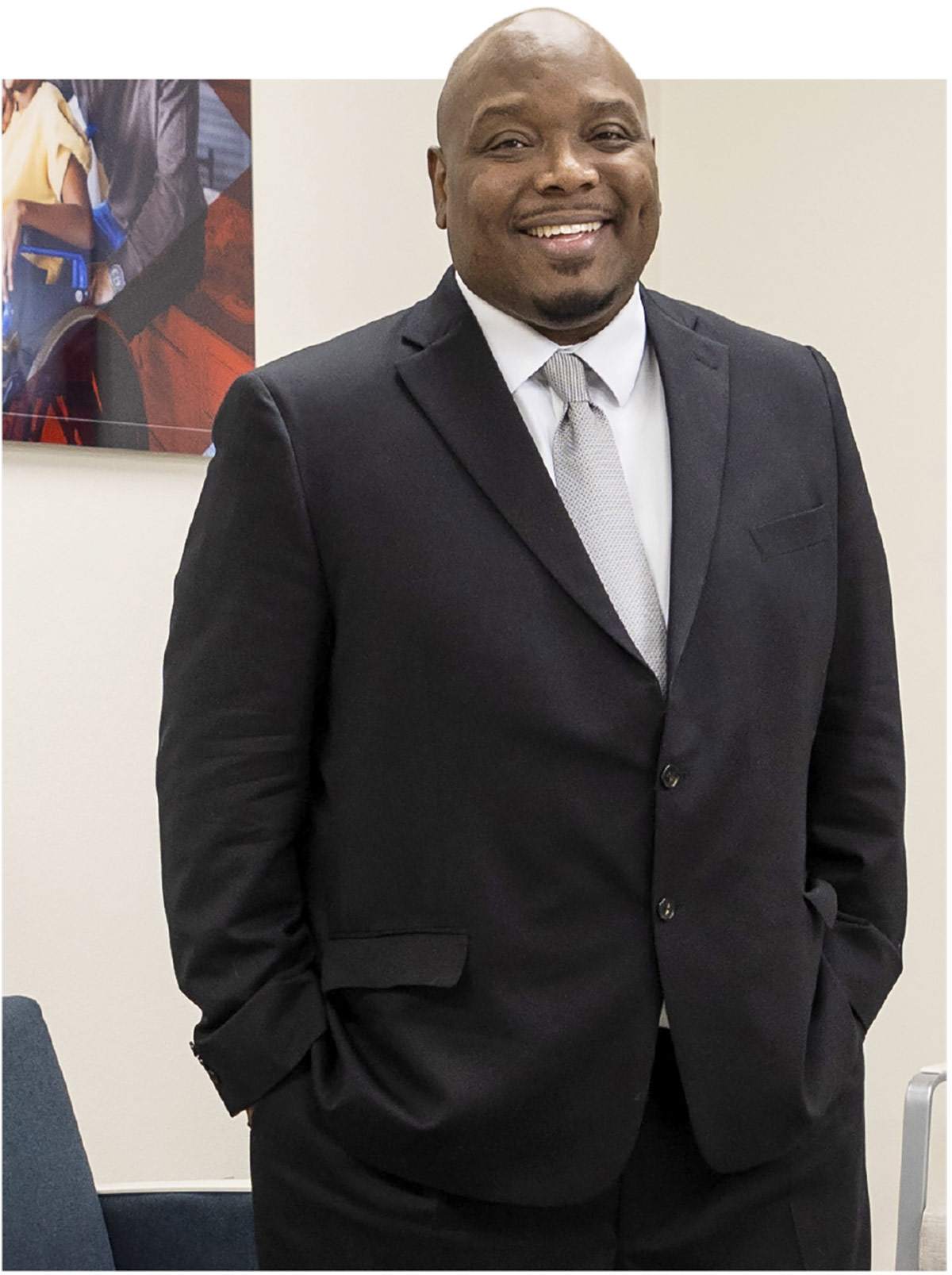
PA’S REACH OUT A HELPING HAND
Access to health care has never been more challenging for more than 3 million Texans who live in a rural area.
Physician assistants can help fill that gap and bring health care to remote, underserved communities. Thanks to a series of grants from the Health Resources and Services Administration (HRSA), an agency of the U.S. Department of Health and Human Services, TTUHSC is developing a Physician Assistant Rural Education and Community Healthcare (PA REACH) program to provide high-quality care in rural areas of West Texas.
ON-THE-GROUND EDUCATION
Site placements will give students the skills and knowledge they need to work in rural areas upon graduation. Typical clinical rotations are six weeks, but PA REACH doubles that time, allowing students several months to be integrated within the community. Students get a feel for common conditions and diseases, referral patterns and how to provide the best care.
“Rural West Texans have higher rates of diabetes, heart disease and hypertension than city populations,” said Christina Robohm-Leavitt, DMSc, PA-C, Midland regional dean for the School of Health Professions and PA program director. “It’s also harder to get to health care providers, whether it’s primary care or specialists. This program helps provide additional expertise and providers in those areas.”
LOCALIZED CURRICULUM
Students will benefit from a deeper dive into health care disparities and mental health. In addition, a telehealth module will equip them to establish on-screen rapport and evaluate a patient without a physical exam.
 SCHOOL OF HEALTH PROFESSIONS
SCHOOL OF HEALTH PROFESSIONSRural Health Care for
People with Disabilities
Taryn Richardson, PhD, NCC, CRC, an assistant professor in the Department of Clinical Counseling and Mental Health, said the issues faced by those delivering care in rural areas and persons with disabilities in rural areas can intersect and overlap. With geographic roadblocks, transportation can prove challenging in both cases. For those with disabilities, the challenges don’t end once they reach their destination.
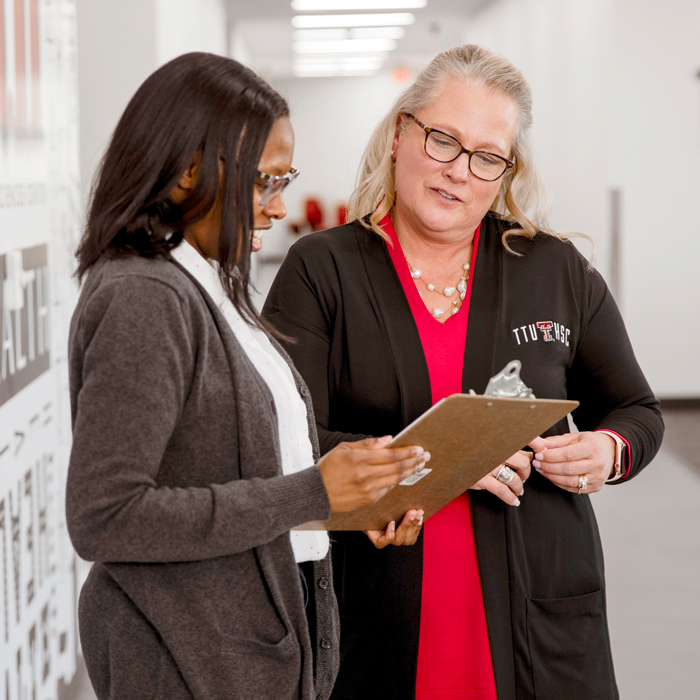

Rural Risk Factor
Rural communities are asking for help in a state built on its industrial and agricultural way of life.

Eliya and Elias Hernandez – the future of rural communities.
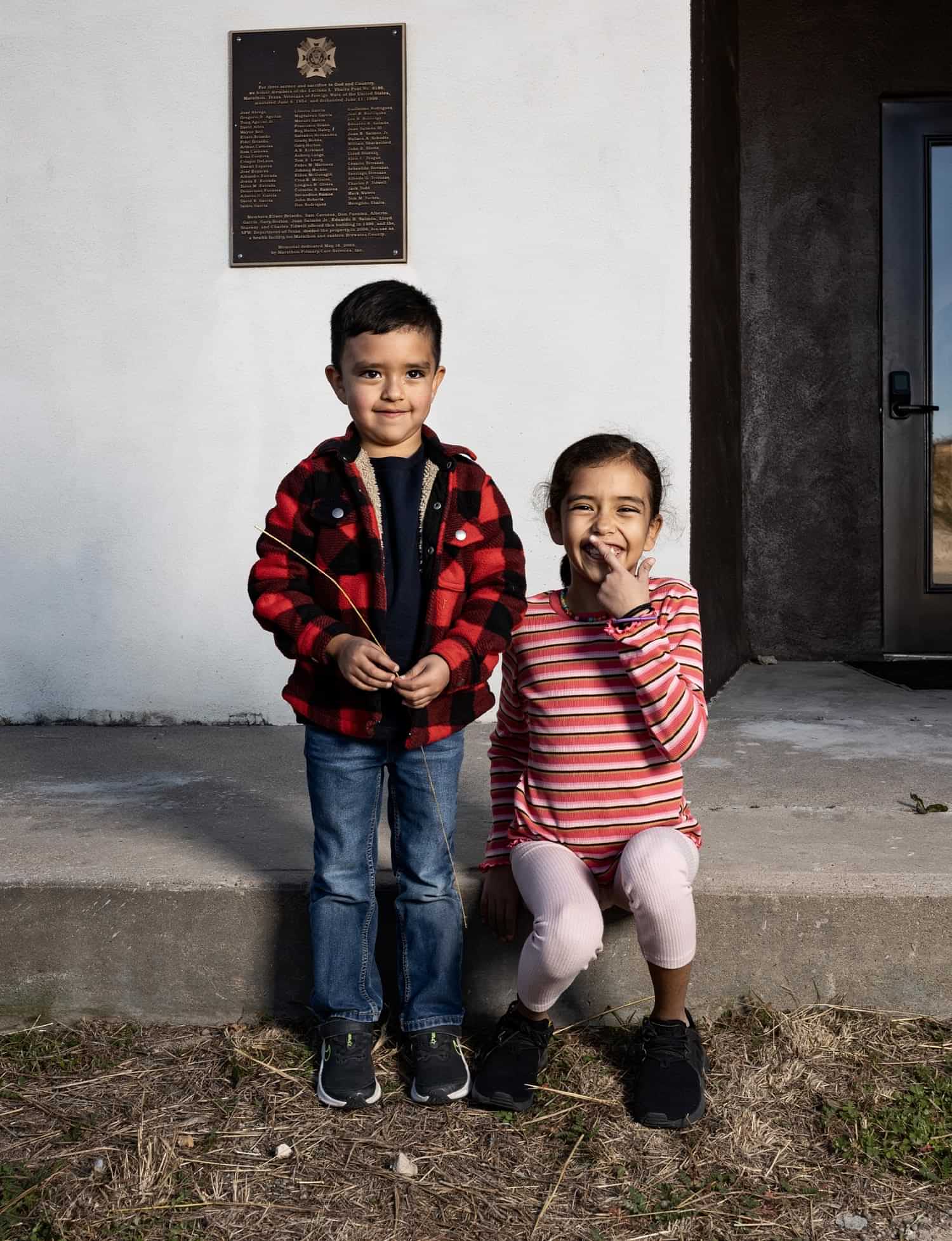
Eliya and Elias Hernandez – the future of rural communities.
risis. A word that has described rural health care since at least the 1980’s.
Defined as a time of intense difficulty, trouble or danger, a crisis in rural health care impacts 3.1 million people in 172 of Texas’ 254 counties.
In the last 40 years, rural Texas hospitals have become crisis casualties. In the 1960s, Texas had 300; today, there are 158. In the last decade, Texas has led the nation in closures — 26 hospitals have closed in 22 communities since 2010.
But “(the crisis) is not going to end when we say it’s going to end; it’s going to end when the rural community says it going to,” Adrian Billings, MD, PhD, chief medical officer of Preventative Care Health Services, a federally qualified health center in Marfa, Presidio and Alpine, Texas, and associate professor for the School of Medicine at the Permian Basin, says.

Chris Gallagher, MD, (Medicine ‘05) at Access TeleCare headquarters located in Dallas, Texas.
You’ll Need This One Day
Making rounds with Christopher Blewett, MD, in fall 2003, Gallagher witnessed the immediate relief he provided to an Alpine, Texas, family whose newborn had an abdominal wall defect. The uncommon condition stumped the local practitioner, who reached out to Blewett, a pediatric surgeon at TTUHSC. The family’s fear of the unknown was quickly put at ease by the telemedicine visit with Blewett that addressed the diagnosis, level of urgency and the infant’s prognosis.
Gallagher calls this the power of telemedicine – access. Watching the calm wash over this family through the ability to talk to a specialist, that they otherwise wouldn’t have been able to do, is something he never forgot. “You have these moments in training where they just stick with you,” he said.
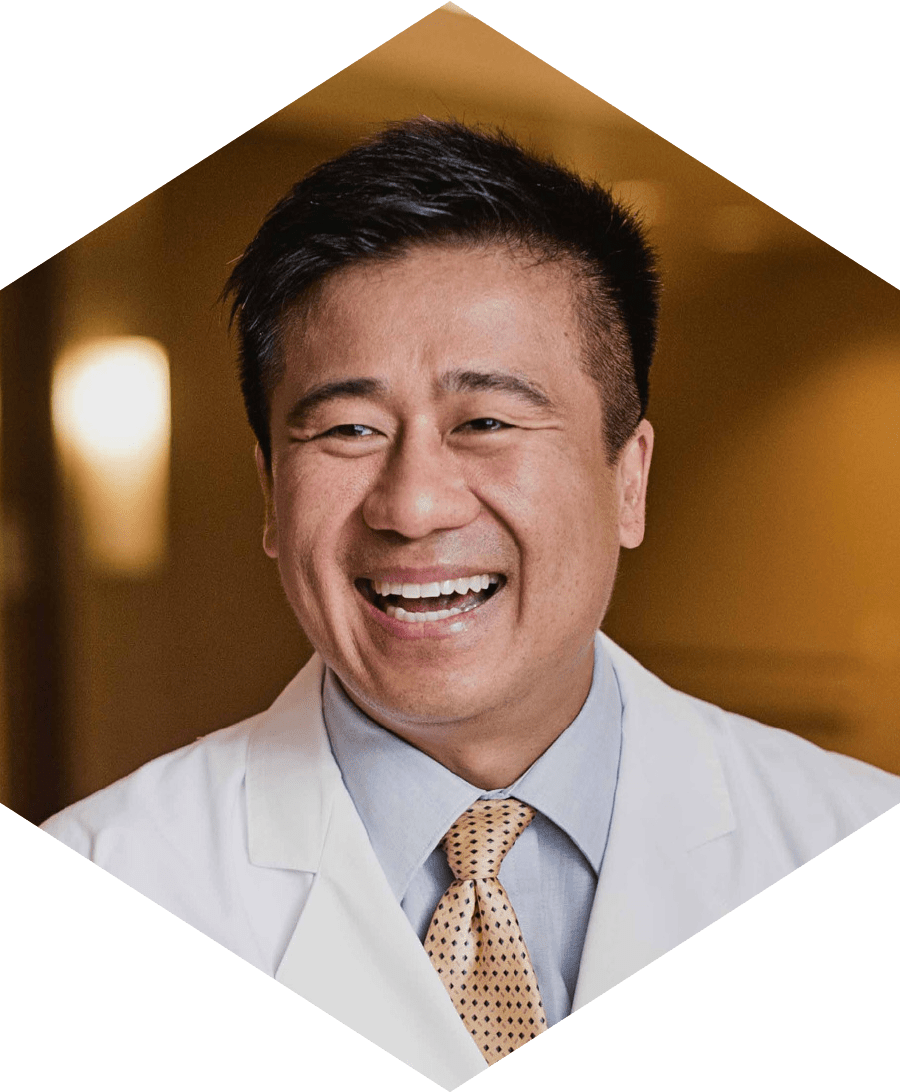
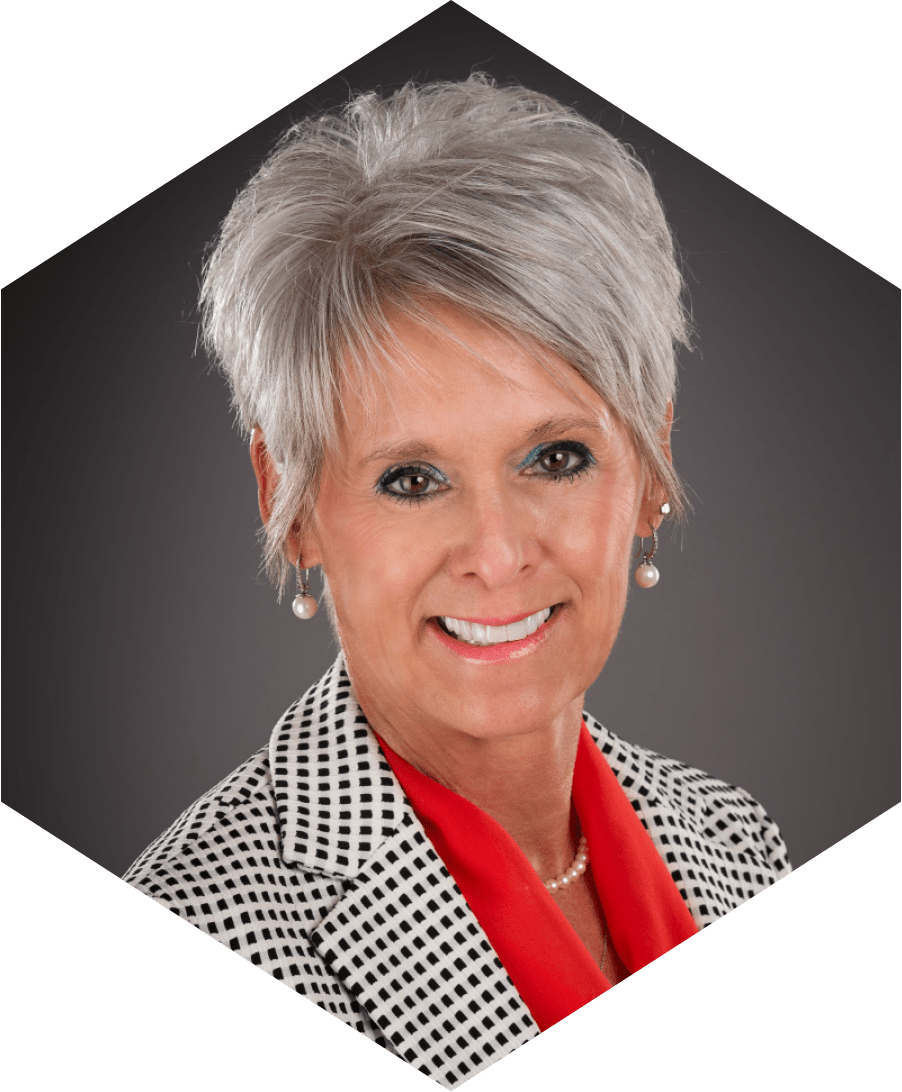

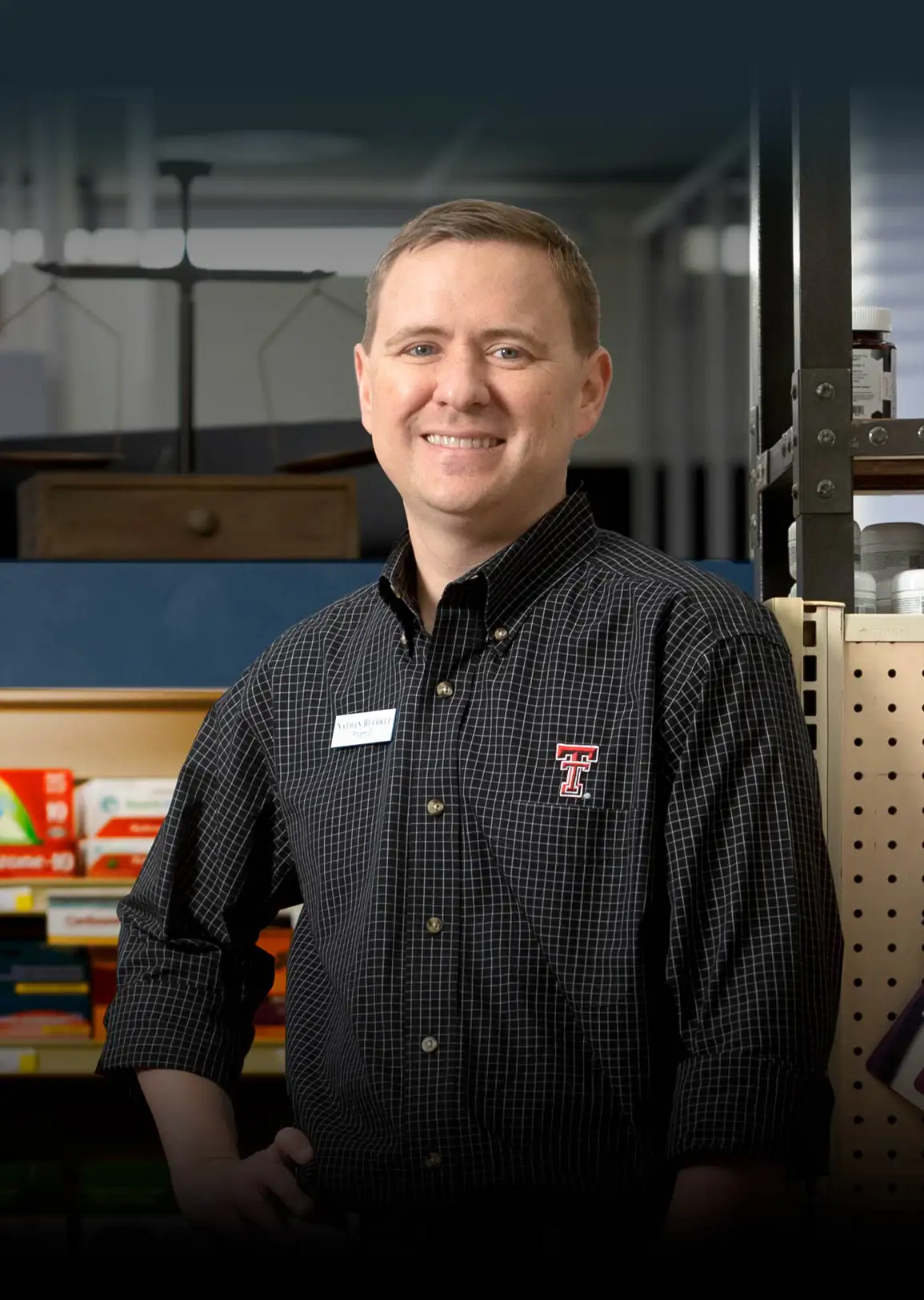
“There are fewer options for certain products and services,” he said. “We want to meet the needs of the community.”
 Commentary
Commentary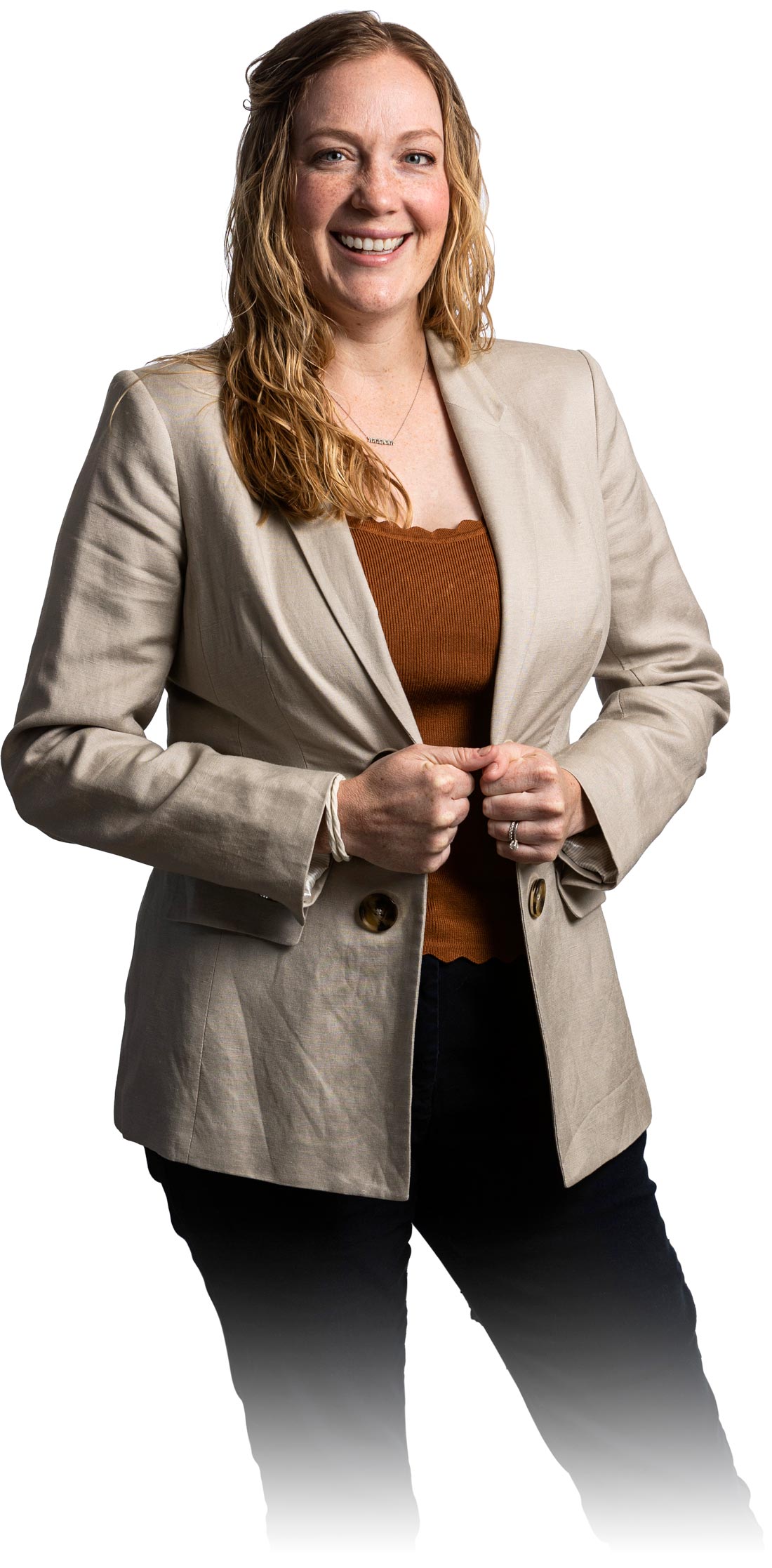
Take it From a Local
I’ve sat in meetings with pharmaceutical company representatives, researchers and health care professionals as they discuss how they’ve read, attended training, or conducted research and know what is best for their patients. Yet they struggle to get patients to trust their judgement and follow their advice.
As a pharmacist, I know how they feel. I was trained to specialize in medication knowledge, but I don’t prescribe — I advise. To effect change, I must convince someone else to make the decision. But how? As a health care professionals’ colleague, I hear the frustrations being unable to help those they’ve sworn to serve.
On the other hand, those they serve are my family and my community, whom I listen to express their distrust for decisions made for them by health care professionals. I’m a first-generation college student from the Texas Panhandle working on my second doctorate –this one in translational science. I left the region for part of my education and then returned to start a family and serve the community I grew up in.
 HEALTH SCENE
HEALTH SCENESigns of the Times
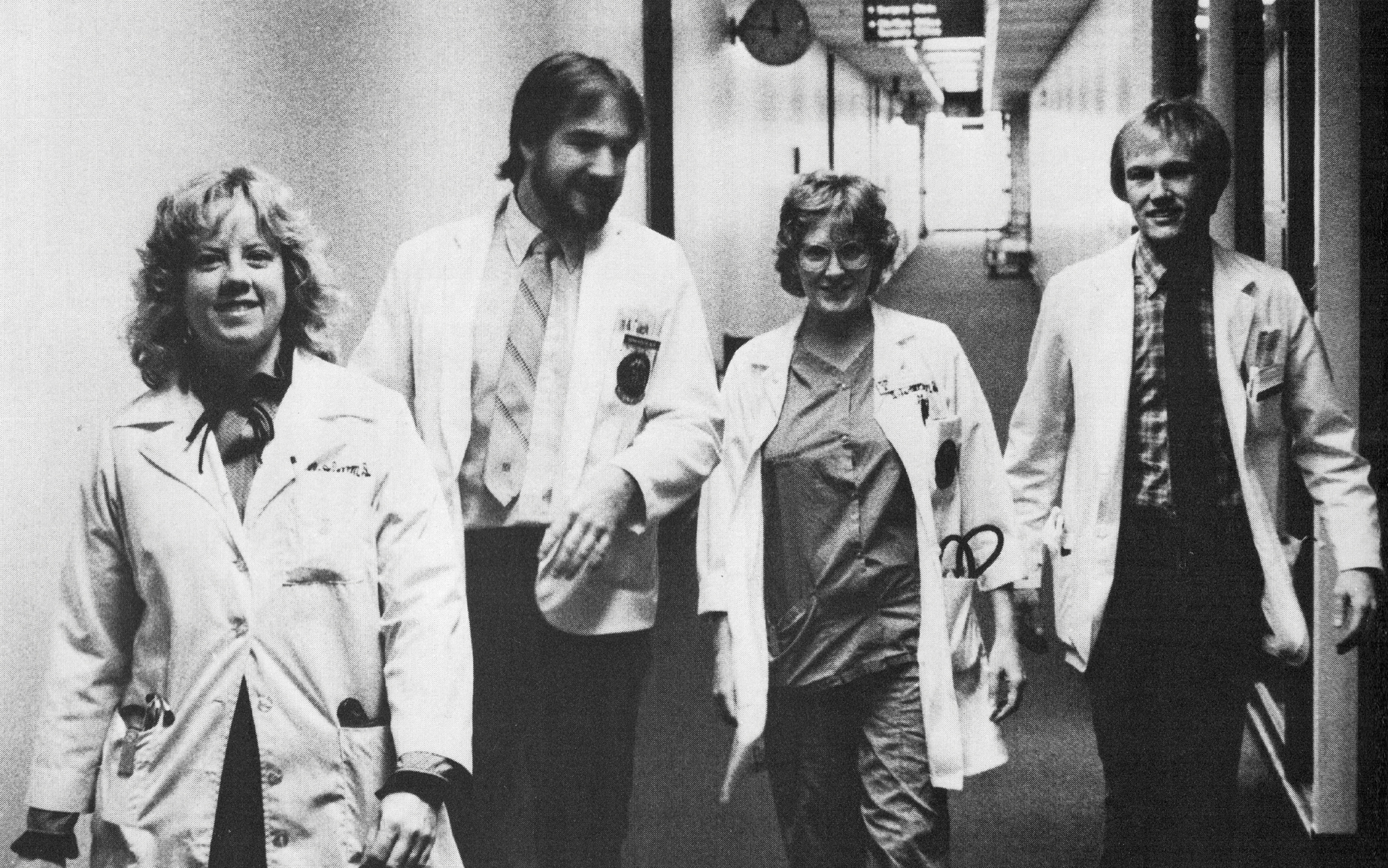
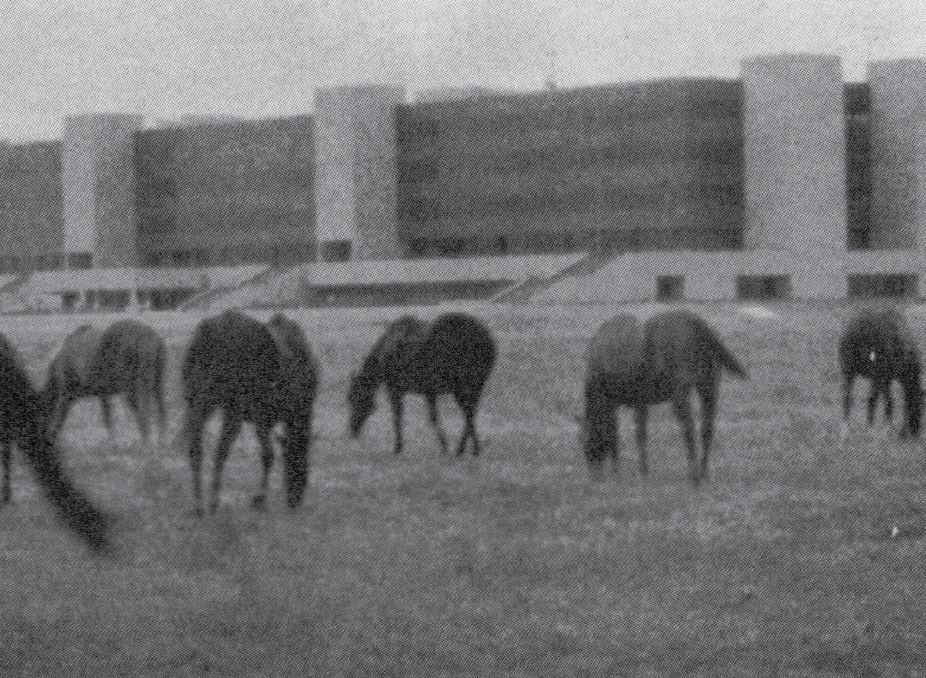
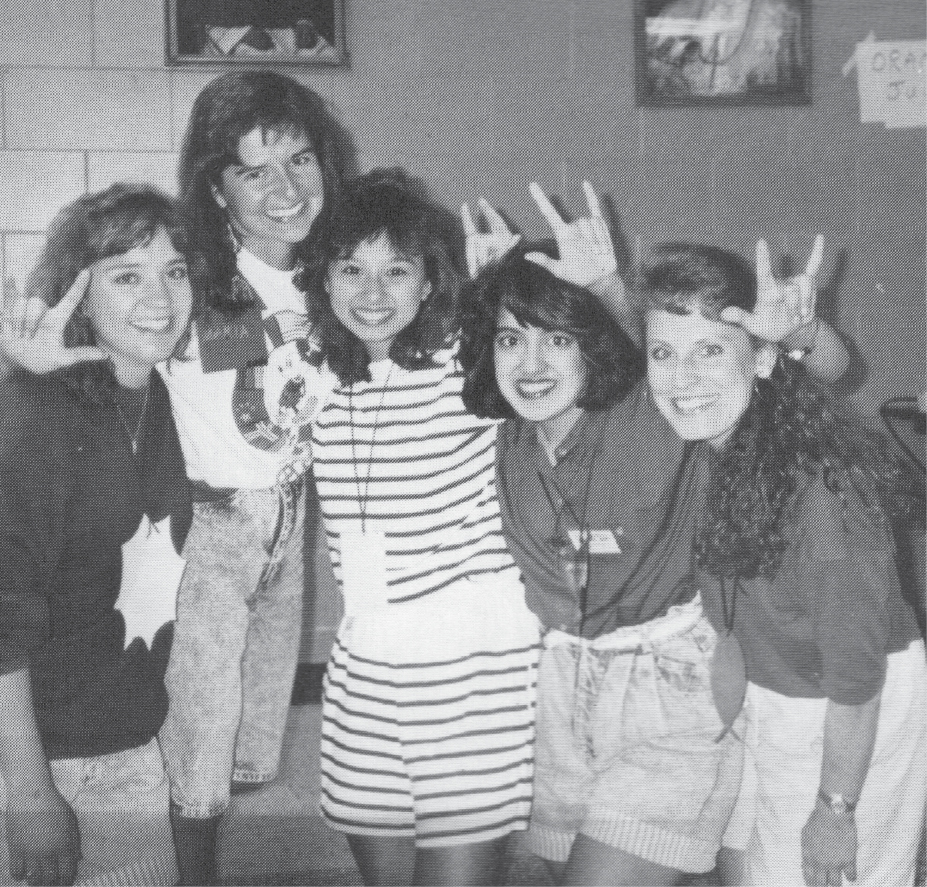
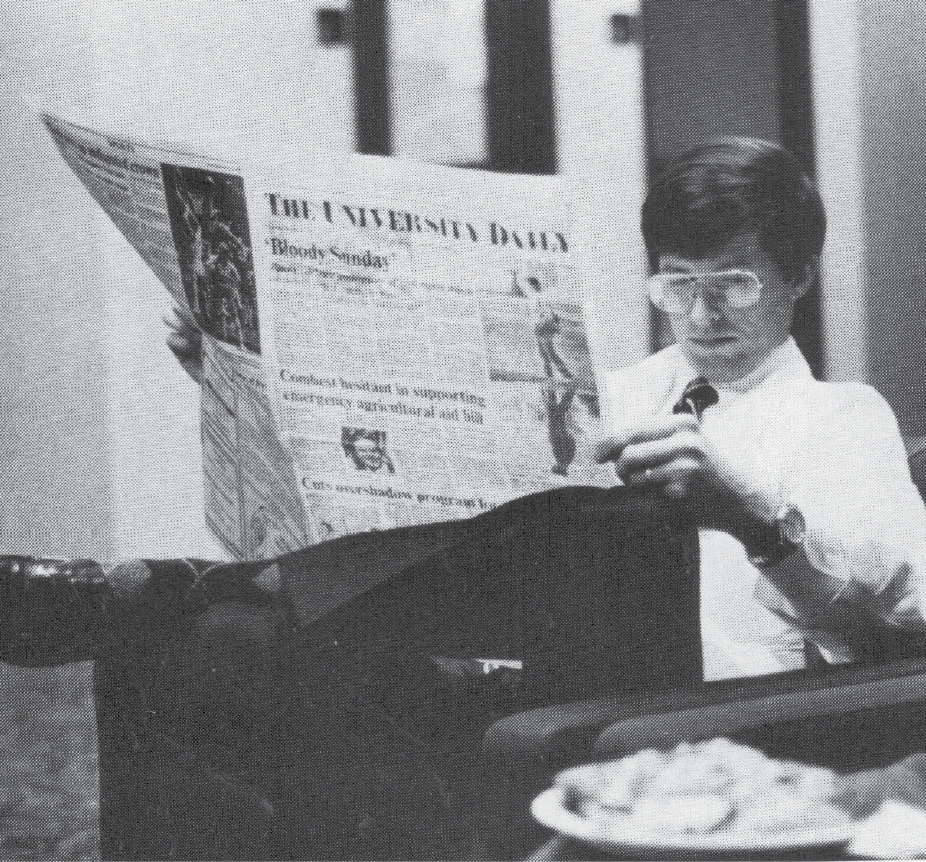
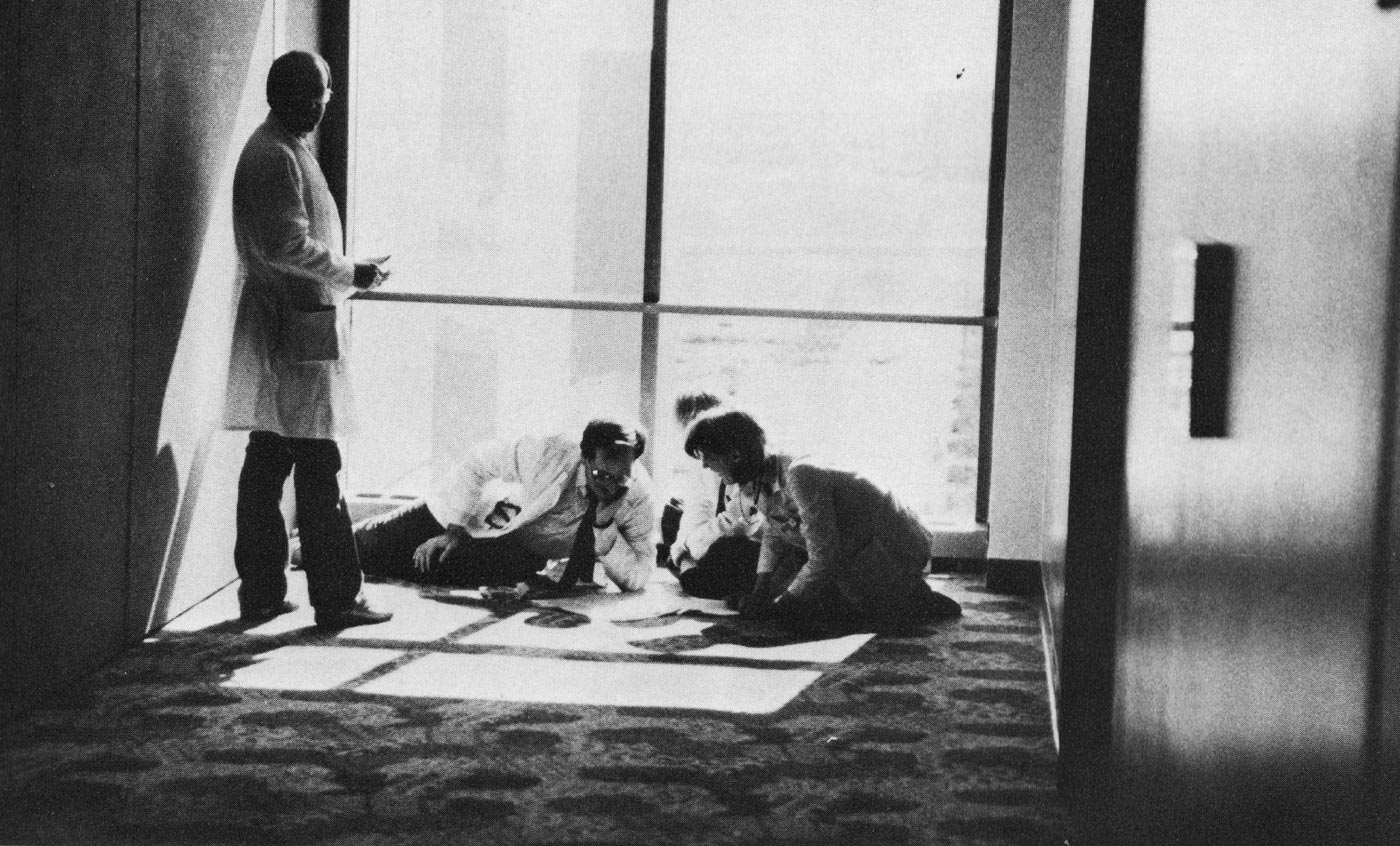
CLEAR THE HALLS
WAY OUT YONDER
SIGNED WITH LOVE
Catching up
MULTI-TASKING TEAMWORK




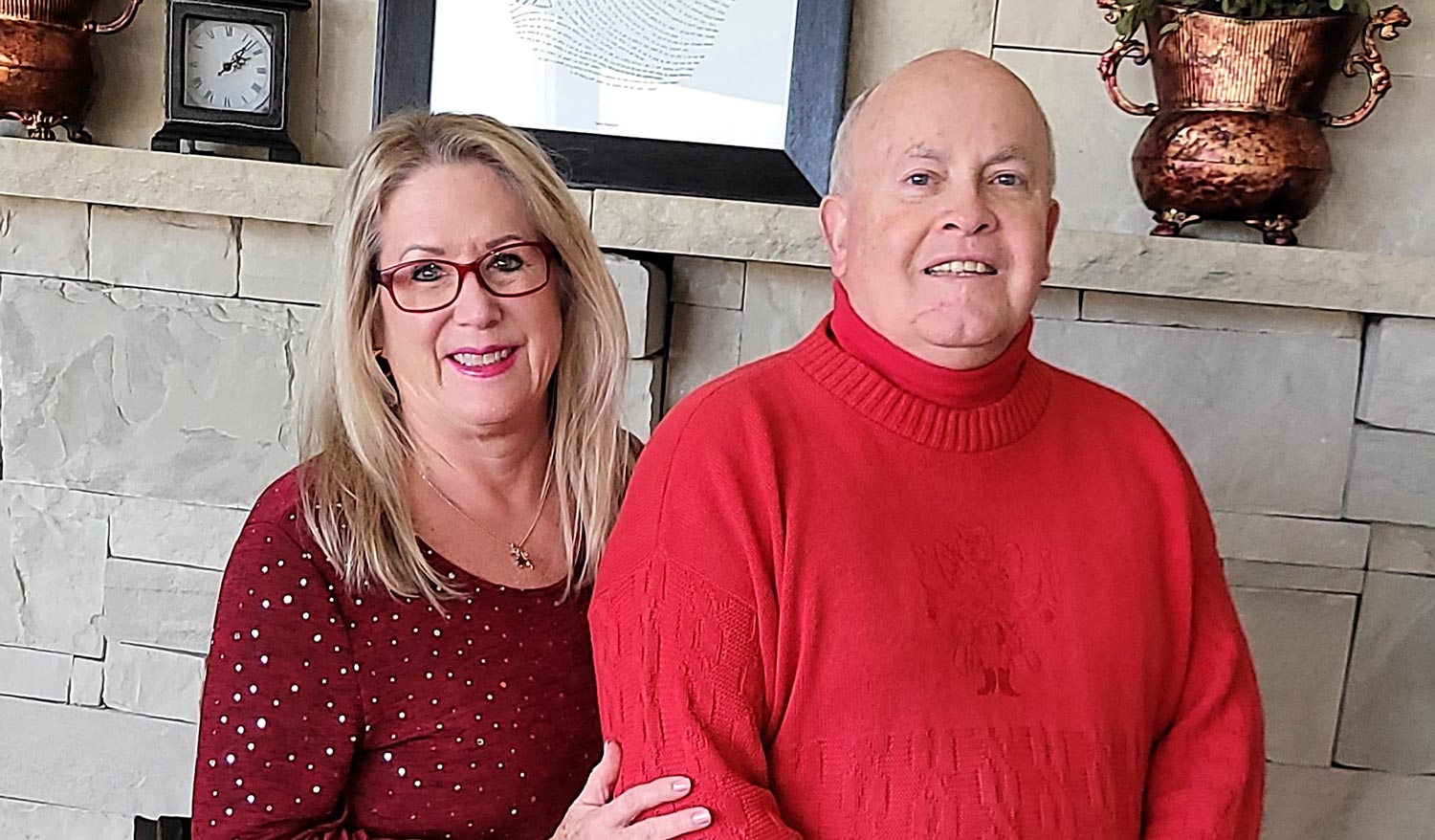
“Because of my deep love for the university and what it did for us, I wanted to continue that for others through our gifts, service and commitment.”
— William “Bill” Persefield, AIA, ACHA, NCARB, (TTU ’77)
Chief executive, medica development, LLC
From his first drawings as an intern — a hospital project in Amarillo, Texas — to his founding of Medica Development, LLC, Bill Persefield has forged a 45-year career as a renowned health care architect. Persefield’s goal is to work with only the best on his hospital ventures, and he asked TTUHSC to partner in helping deliver quality, innovative health care. He and his wife, Ellen, (TTU ’81) have included TTUHSC and the Texas Tech University College of Architecture in their estate planning and will establish a scholarship endowment to help ensure TTUHSC continues to recruit and train the caliber of health care providers for which it has gained statewide reputation.
To make your GIFT OF IMPACT, contact Nathan Rice, CFRE, at
giftplanning@ttu.edu or 806.742.1781.
Learn more about smarter ways to give: www.ttusystem.myplannedgift.org

Update Catching Up With TTUHSC Alumni & Friends
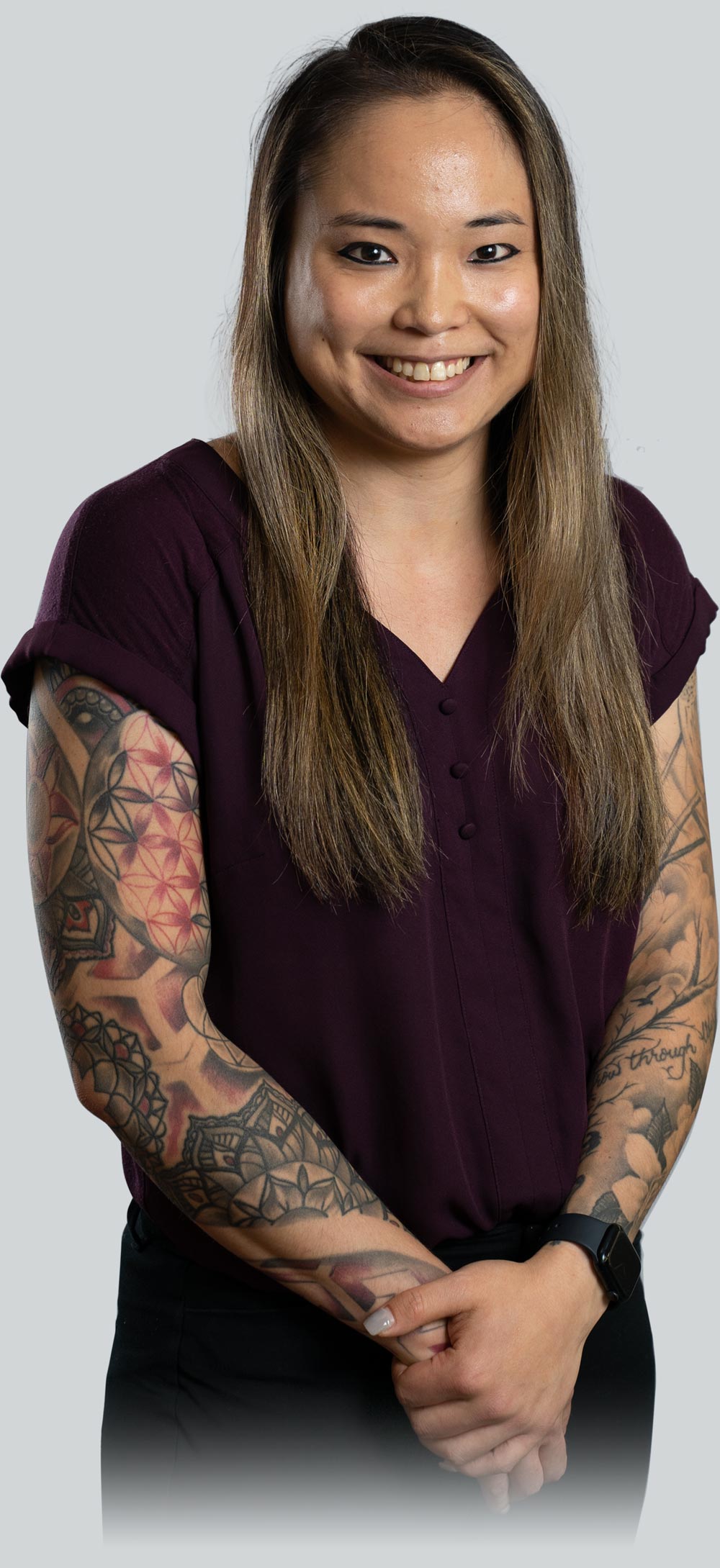
Christina Chen, DNP, APRN, PMHNP-BC
Christina Chen, DNP,
APRN, PMHNP-BC
OF PRACTICE
Nursing Graduate: 2022, 2018
Healing the Healers
Amid the program’s experiences, including a global pandemic, Chen saw other vulnerable groups in need. One specifically — the health care professionals themselves.
While a full-time graduate student, Chen worked in Lubbock, Texas, during the peak of COVID-19 as a night shift charge nurse for University Medical Center’s intensive care unit. Working exhausting hours, Chen recognized other nurses’ struggles.
“Everyone talked about ‘superheroes on the front lines,’” Chen says. “You might see us as superheroes, but we’re normal people on the inside.”
Now, she supports future nurses as a faculty member at The Ohio State University in Columbus, Ohio. Chen will use this time as a clinical assistant professor of practice to guide students — caring for those training to care for others — while she continues to pursue her long-term career as a mental health nurse practitioner.
— Kate Gollahon
 News & Notes
News & Notes
Graduate School of Biomedical Sciences
Omar Ledezma, MS, (’22) joined Eurofins as a scientist II.
- Shreyas Gaikwad, MS, graduate student, was awarded the Syngenta Fellowship Award in Human Health Applications of New Technologies.
- Vadivel Ganapathy, PhD, faculty member and department chair in the School of Medicine, retired in Feburary.

School of Health Professions
Rene Canas, DPT, (’00, ’11) named CEO of ClearSky Rehabilitation Hospital in Flower Mound, Texas.
- Ben Shook, DPT, COMT, IAOM, (’11, ’00) launched a new website for his company, Axiom Physiotherapy, located in Austin, Texas.
- Wadie Williams Jr., RRT, TTS, FAARC, (’10, ’07) retired from the Texas Military Department and the Texas State Guard.

Friends We’ll Miss
Joyce Badger died Dec. 19, 2022. She worked for TTUHSC as a correctional health social worker with at the John T. Montford Prison until retirement in February 2022.
- Aaron Jiunn-Yeu Chen, MD, (’20) died Oct. 27, 2022. He was a Family Medicine resident at TTUHSC in Amarillo.
- Mark Dame, EdD, MHA, CPHRM, FACHE, died Jan. 27, 2023. He was an associate professor at TTUHSC and executive with Texas Tech Physicians and the School of Health Professions Speech and Hearing Clinic.
- Bernhard T. Mittemeyer, MD, died Jan. 25, 2023.He was a professor of urology and held multiple leadership roles at TTUHSC for almost 40 years.
Update News & Notes
News & Notes
Stephanie Palmer, PharmD
Pharmacy Graduate: 2007
Happy to be home again
“I wanted to work in health care but also wanted a career that would allow me to have a family,” Palmer said, explaining why she studied pharmacy and opted to stop working in a retail chain.
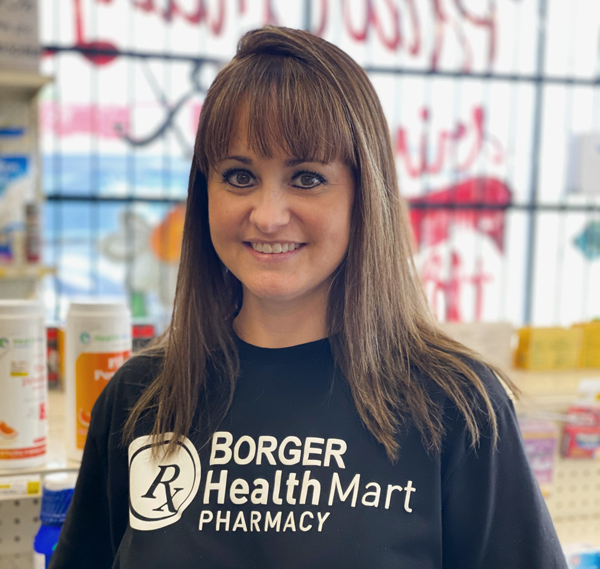
— Susan Blystone
Update News & Notes
News & Notes
Ivan Becerra, MD
Medicine Resident: 2020/Fellowship: 2021
At Home In A Small Town
For Ivan Becerra, MD, working as an emergency physician at the only hospital in Fort Stockton, Texas, can require skills that his urban counterparts often don’t need. That’s because Fort Stockton has very few specialists: There are no cardiologists, orthopedic surgeons, obstetricians or gynecologists. The hospital doesn’t even have an ICU.
“A lot of the procedures that, in a larger hospital, would get outsourced to another specialty, we get to do on our own,” Becerra says. “We probably set more bones and deliver more babies than an urban ER doctor would.”
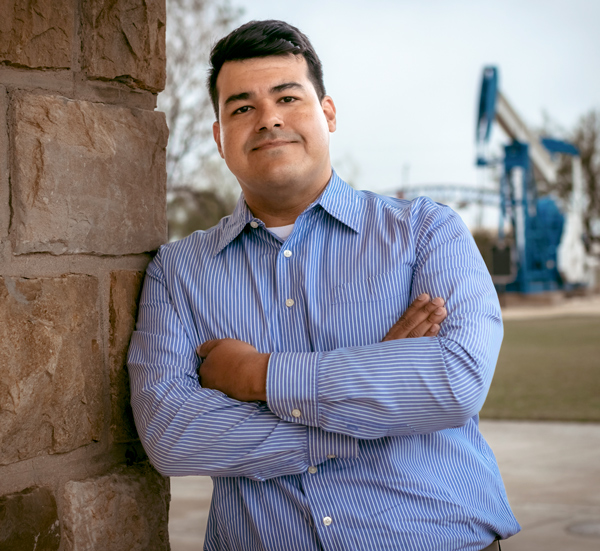
He loves the work and the relationships he’s built. “I’ve become attached to this community,” he says.
— Tina Hay
Update News & Notes
News & Notes
Cecilia Murillo, MD
Medicine Resident: 2020; Medicine Graduate: 2017
Biomedical Sciences Graduate: 2014
Compassionate Care For Communities In Need
Growing up in El Paso, Texas, Cecilia Murillo, MD, saw how underserved patients struggled to receive care, whether due to a lack of insurance or physicians. She developed an interest in working with underserved patients, which she fostered throughout her residency in Lubbock, Texas, and working in the TTUHSC Free Clinic during medical school.
Murillo — who now works in family medicine for Uvalde Family Practice Association — enjoys developing deep relationships with her patients and their families.
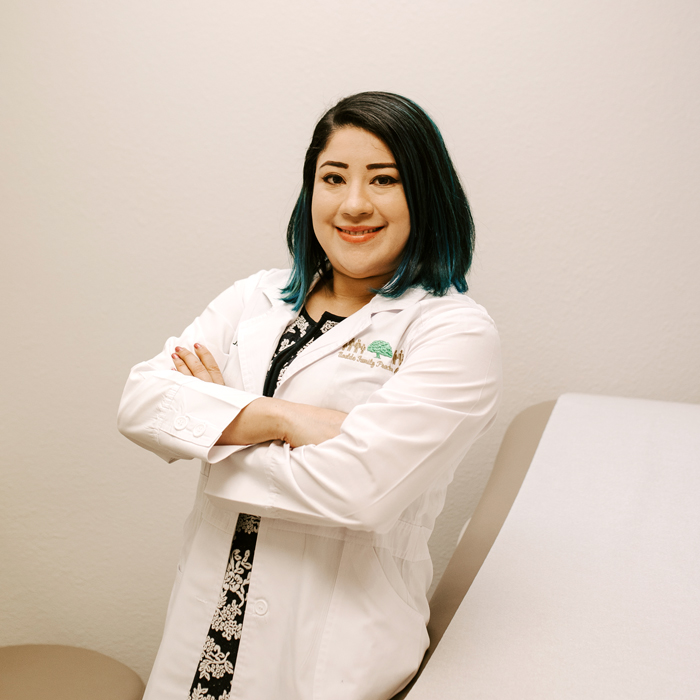
Those connections are also behind Murillo’s involvement in community efforts to advocate for gun legislation — a movement she joined after she served as a responding physician following the mass shooting at Robb Elementary School in May 2022.
“I feel like I’m doing work here that needs to be done everywhere,” she said. “We just had a tragedy that made it come to the forefront.”
— Kim Catley
Update News & Notes
News & Notes
Steven Spoonemore Jr., DPT
Health Professions Graduate: 2006
SERVICE ACROSS THE STATES
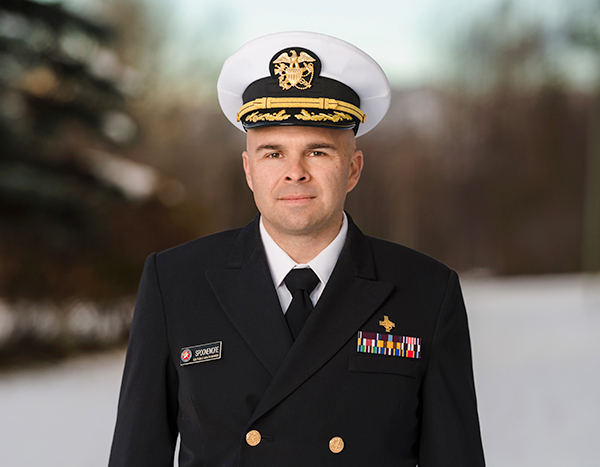
Signage at the 2008 American Physical Therapy Association conference introduced Spoonemore to the U.S. Public Health Service. Entering active-duty service, opportunities for advanced public health and fellowship training in orthopedic manual physical therapy provided a foundation to move into an integrated primary care, team-based role. He continues to work toward expansion of physical therapists as integrated primary care providers across the country.
— Danette Baker


The Draw of the Plains

“I decided to go to culinary school and moved to Austin with the intention of never going back to Lubbock,” Kim said. It was there that Kim met her now husband Chris, then a software developer who would later co-found the Austin Beer Guide magazine with an eye toward opening his own brewery someday with business partner Shawn Phillips, whose wife was also from Lubbock. However, according to Chris, “our families got pregnant and had kids at the same time, so we did the magazine instead of the brewery because it was easier to do at home.” And so, they settled into life in the Austin area.

Respected leader,
humble servant
1930-2023







